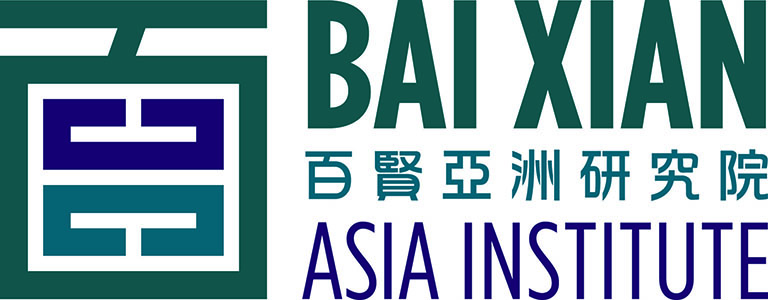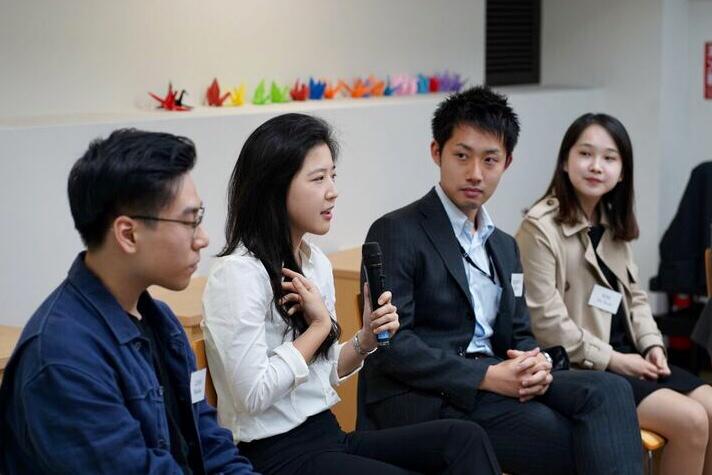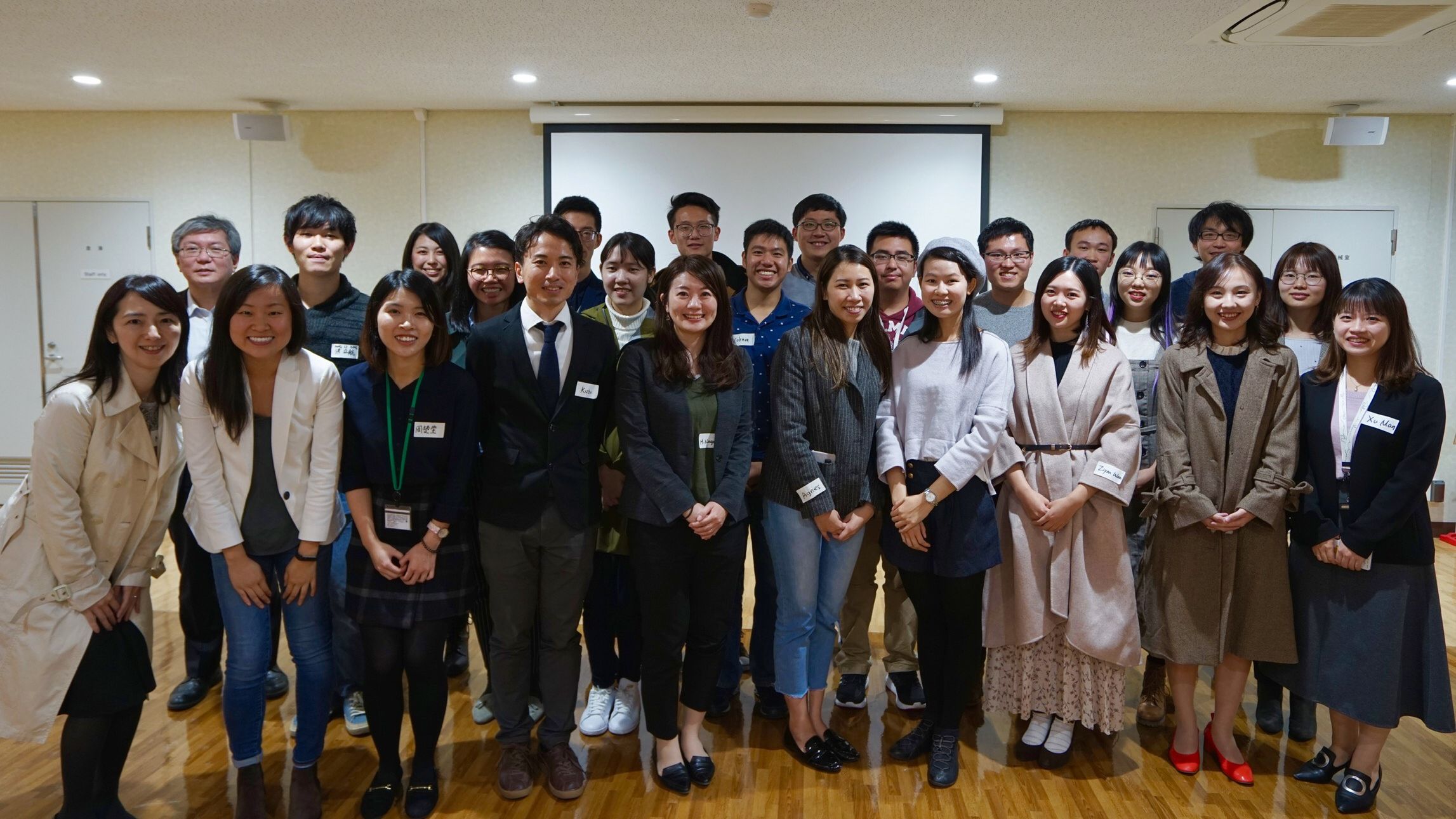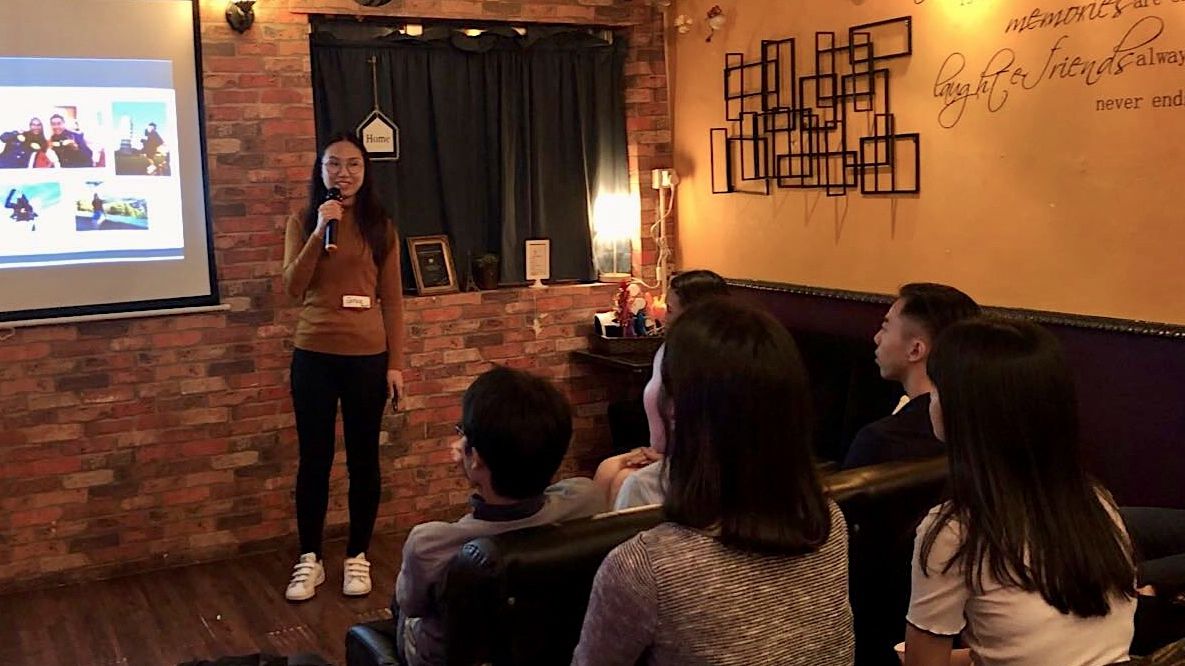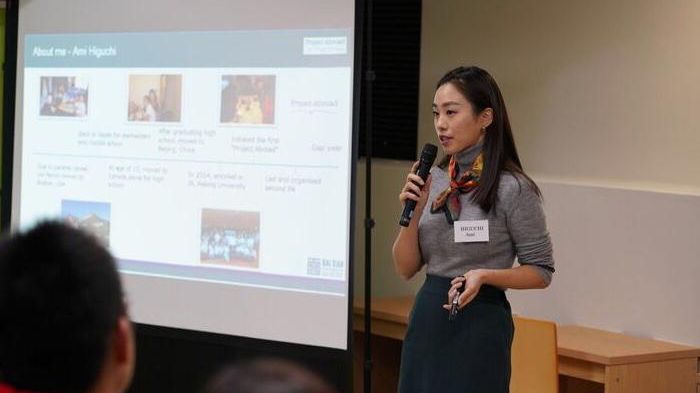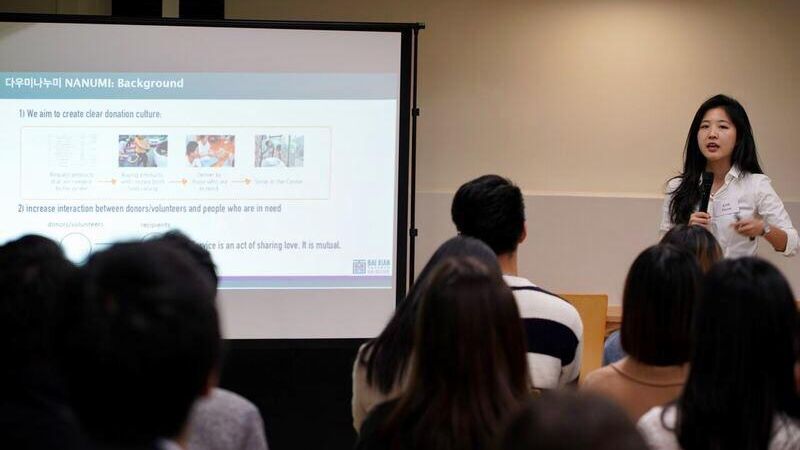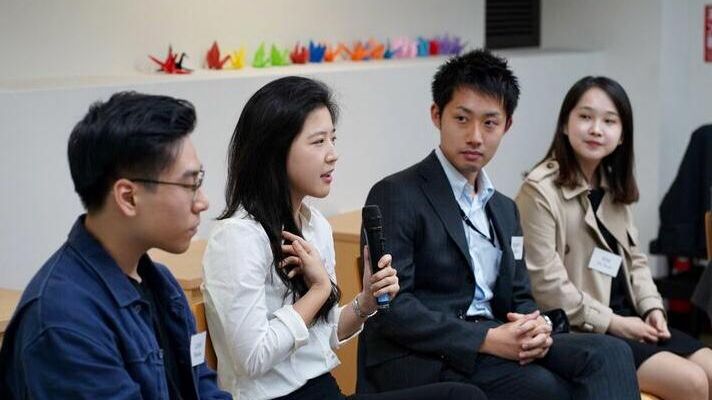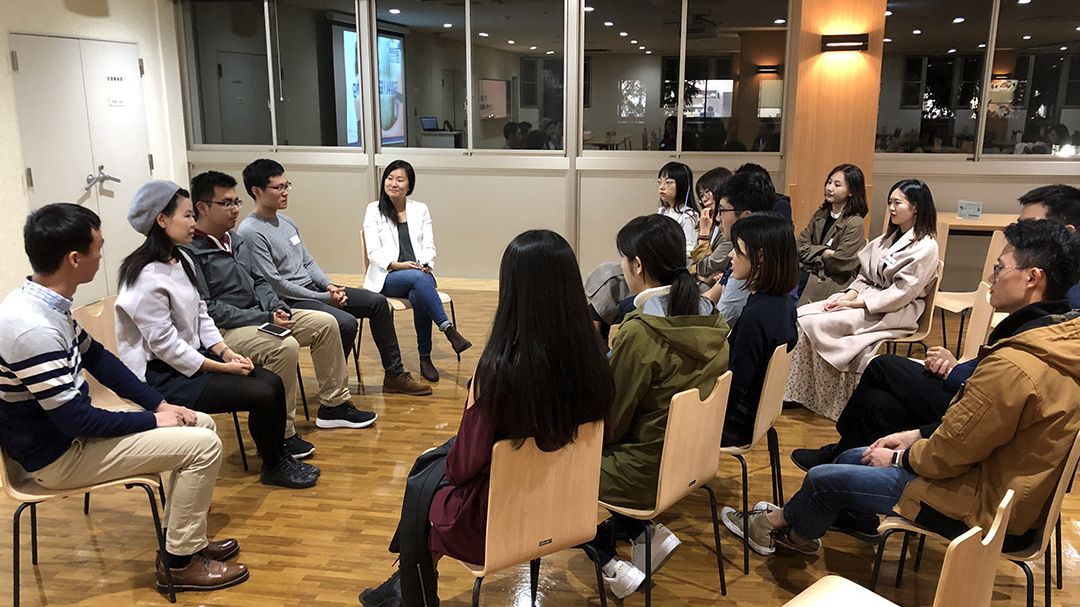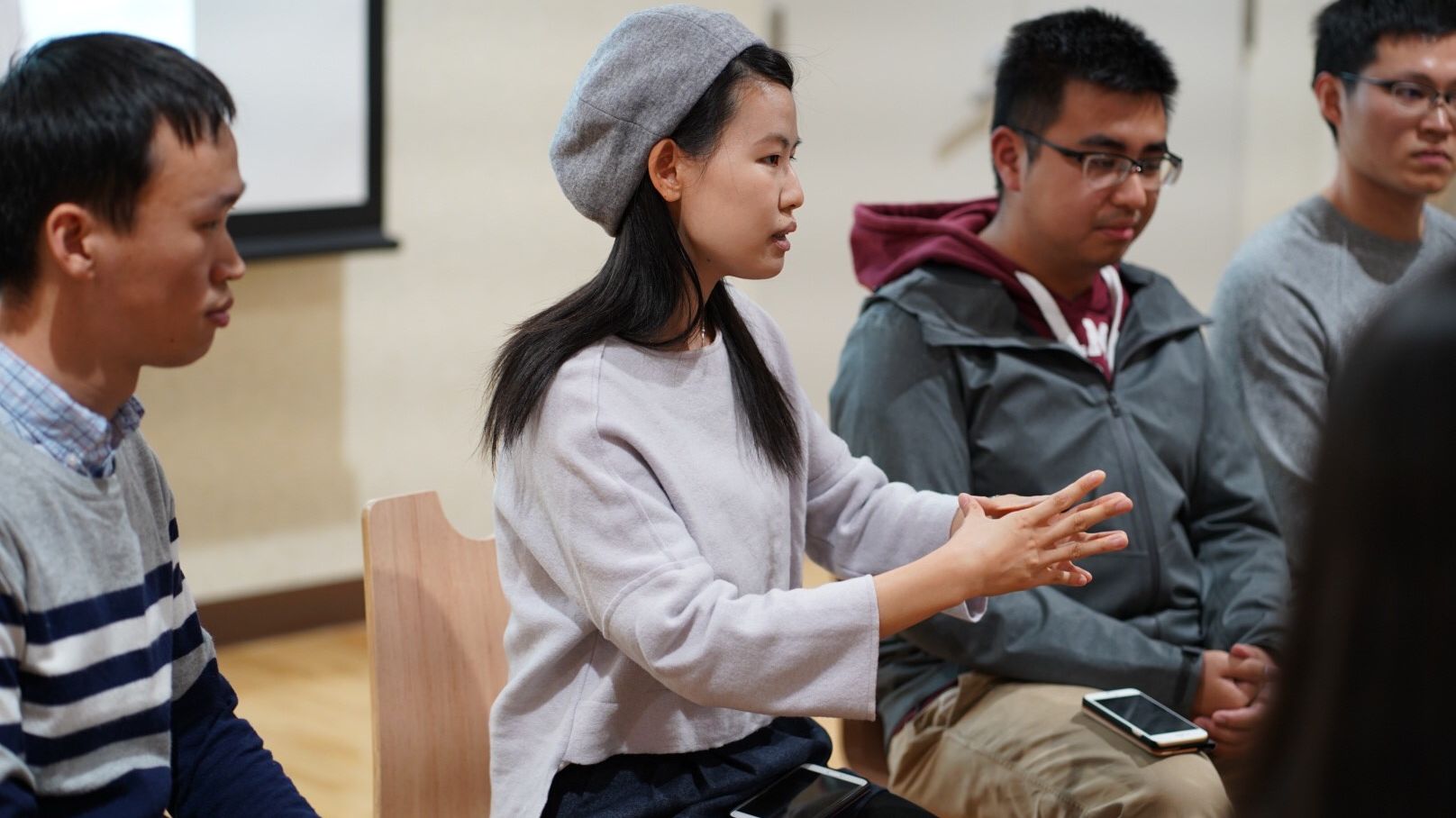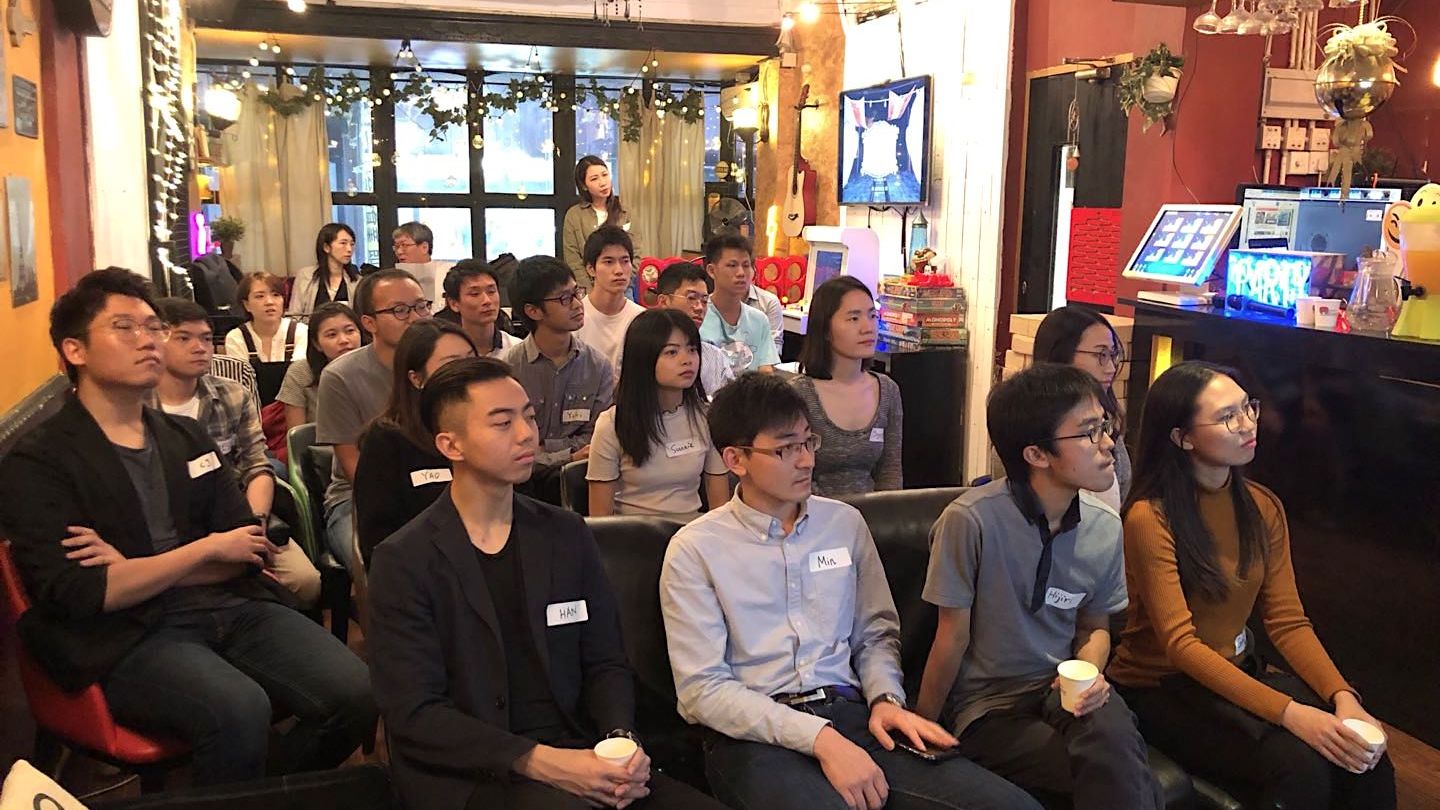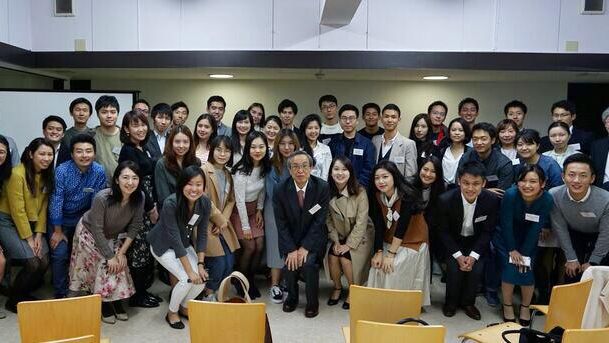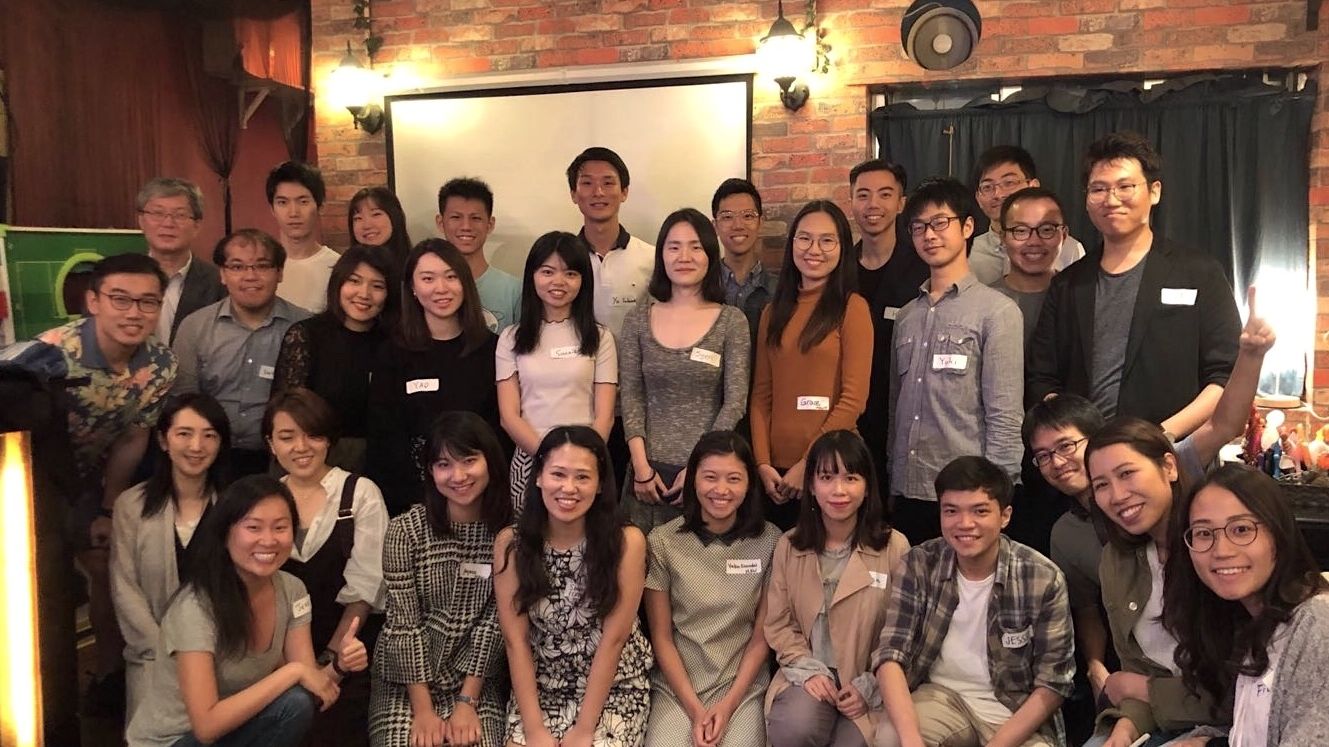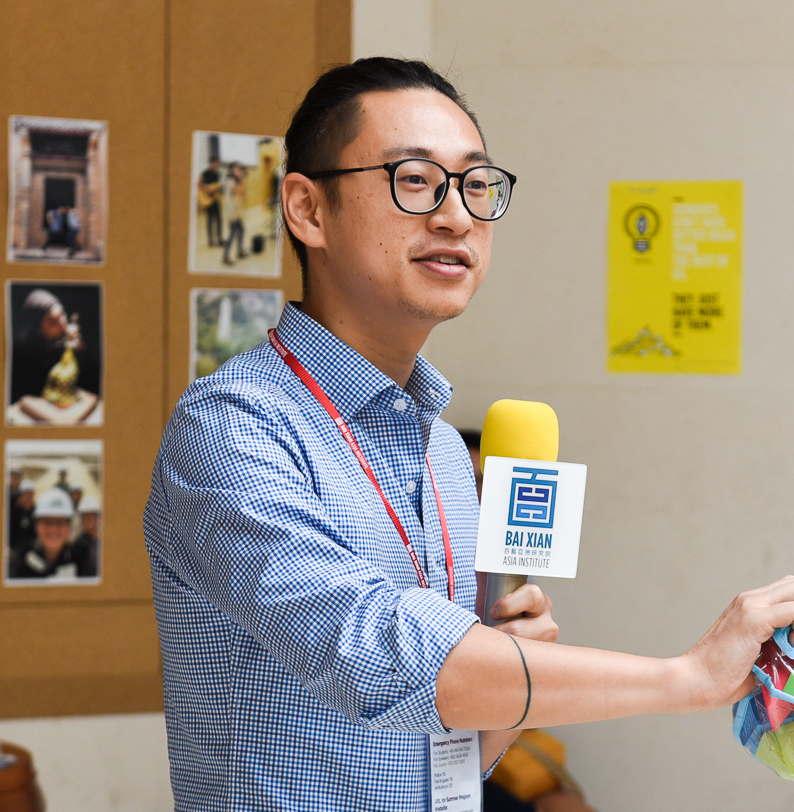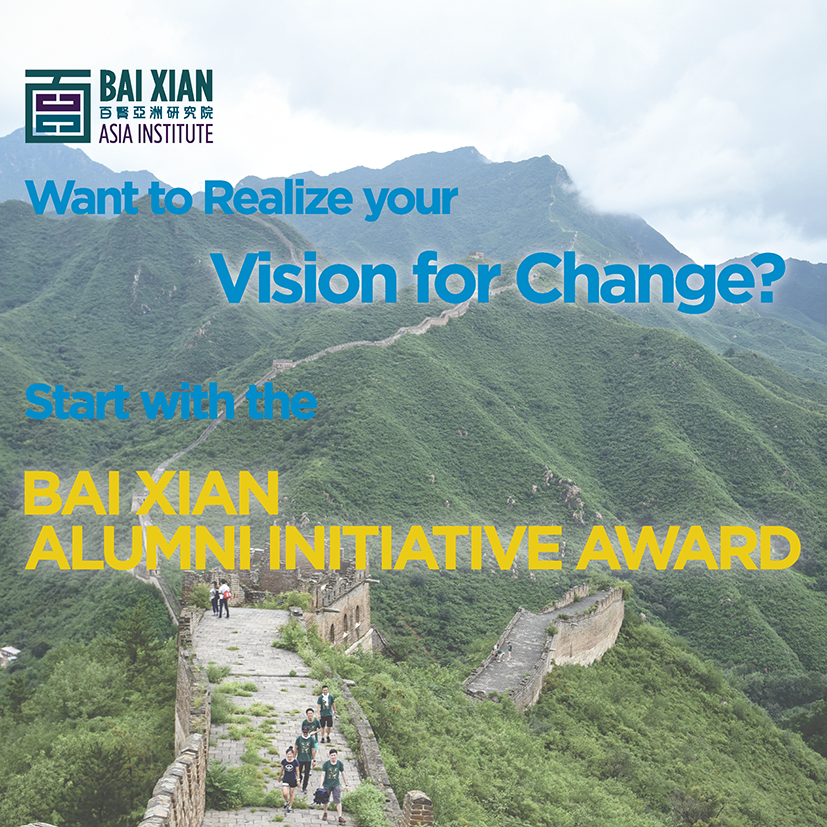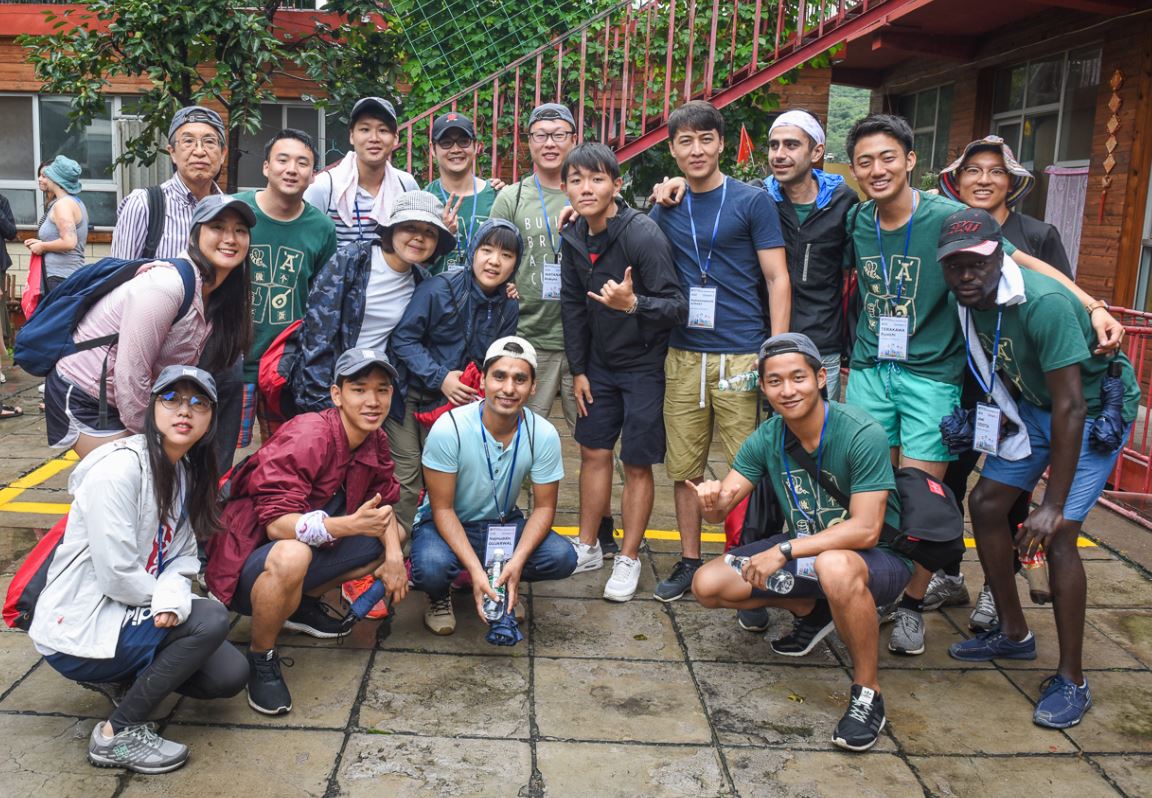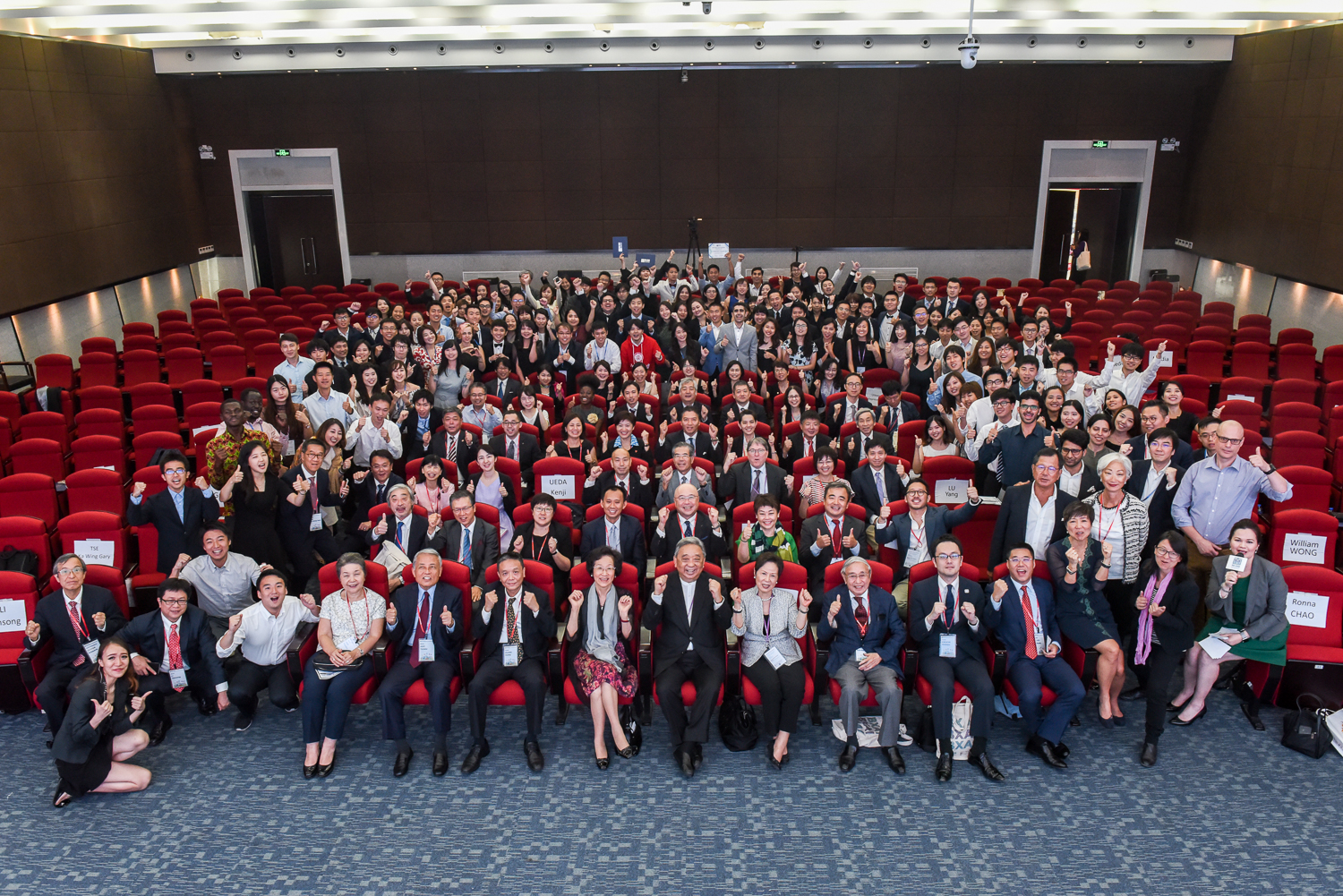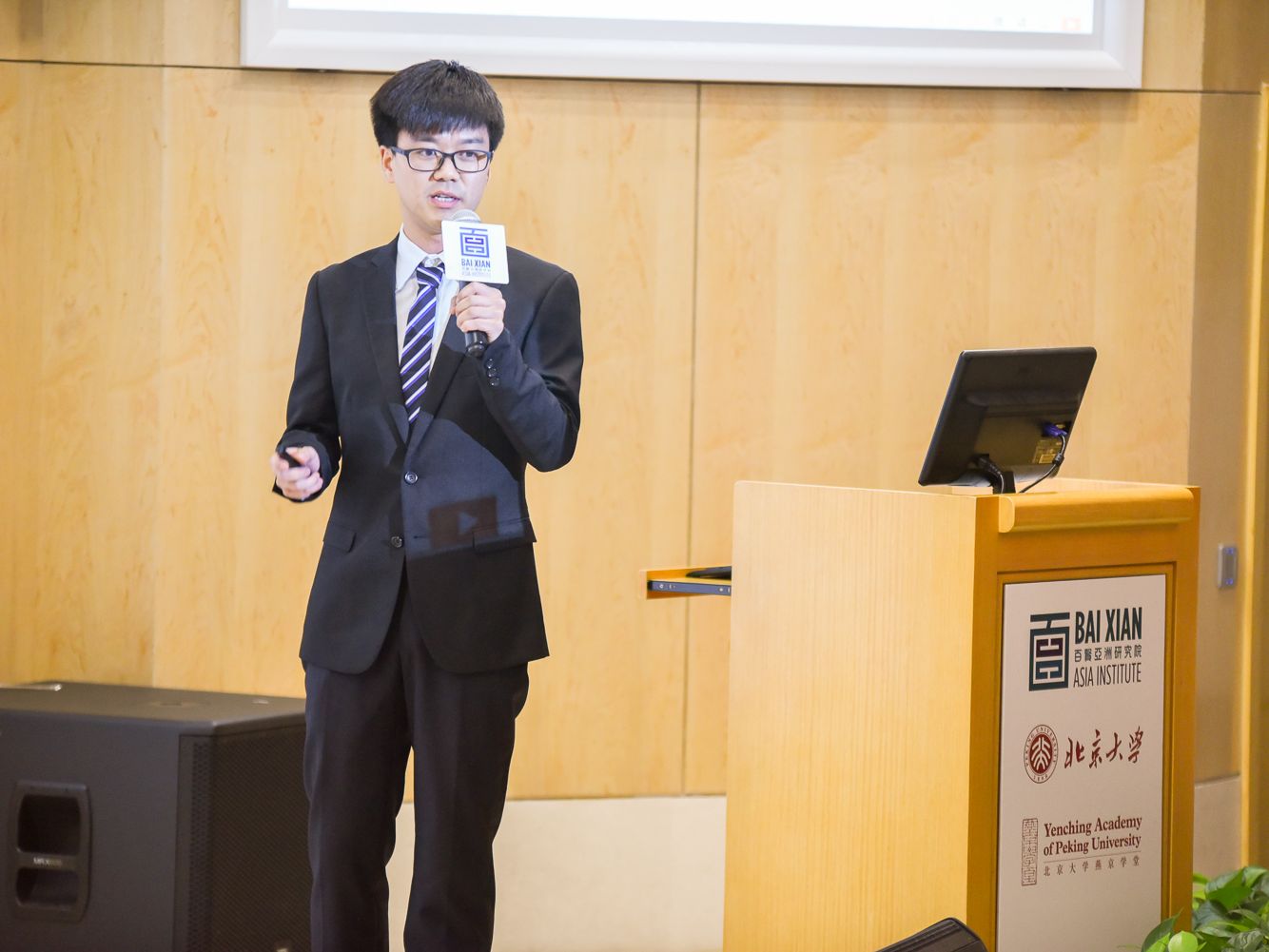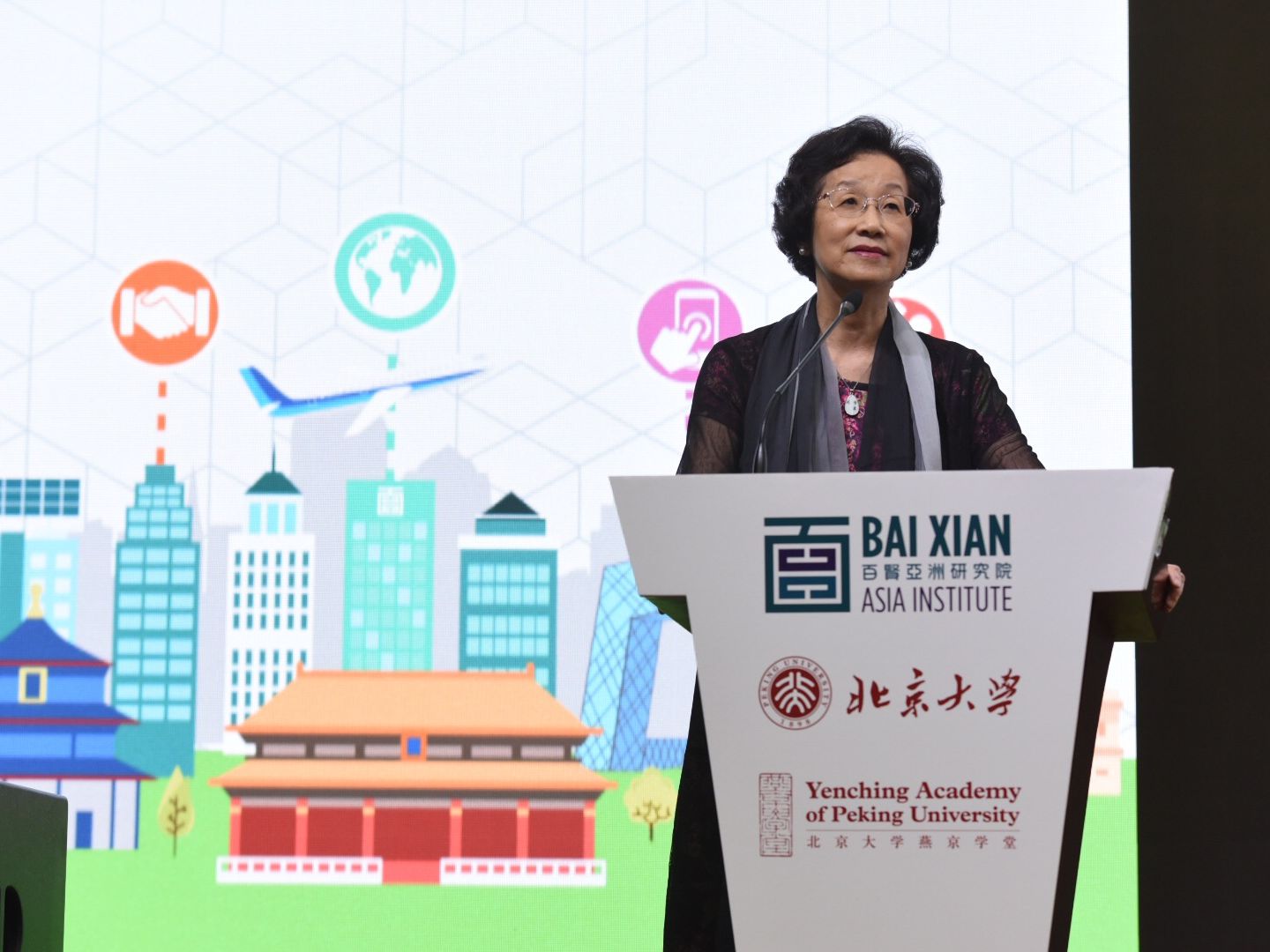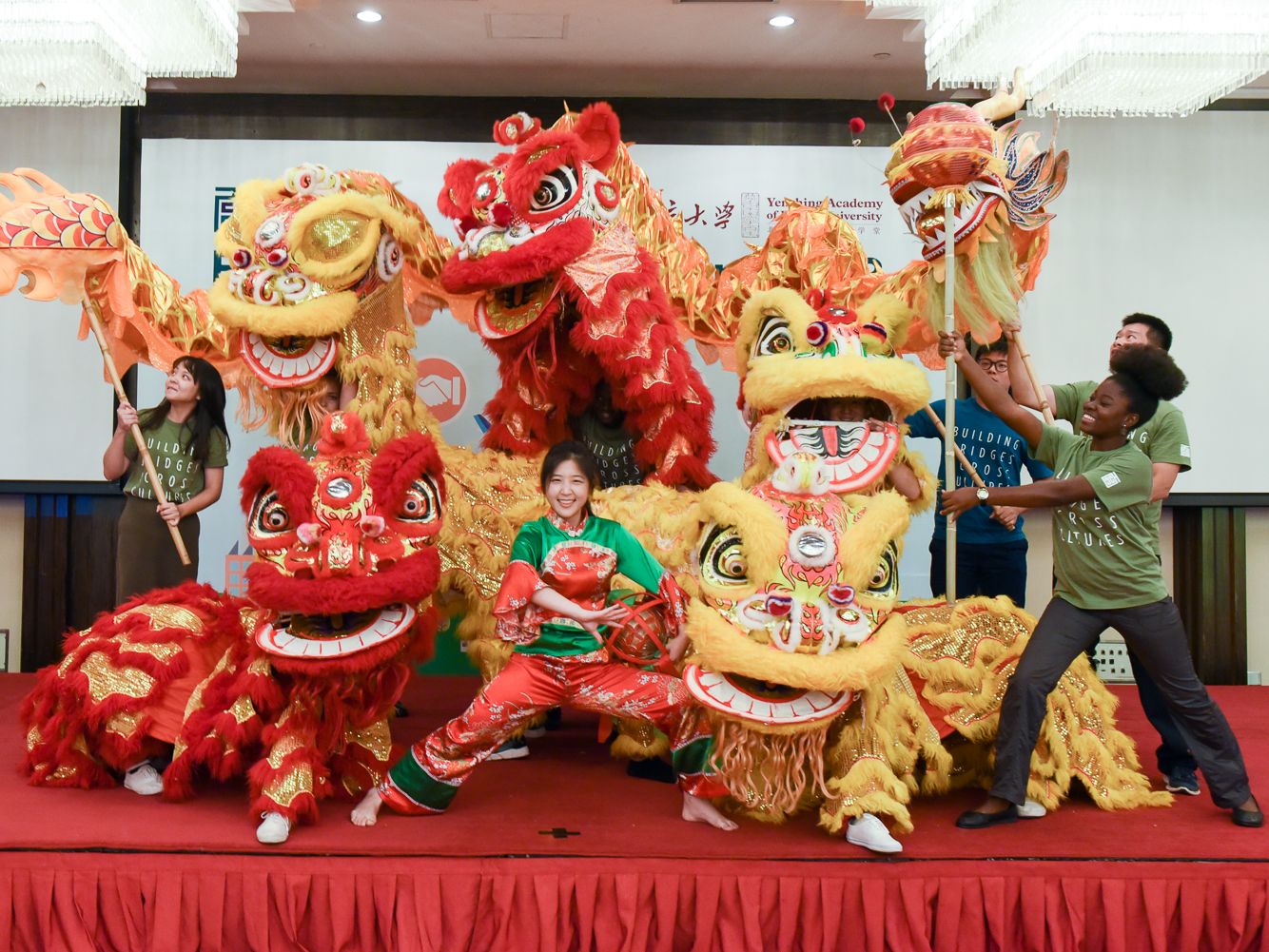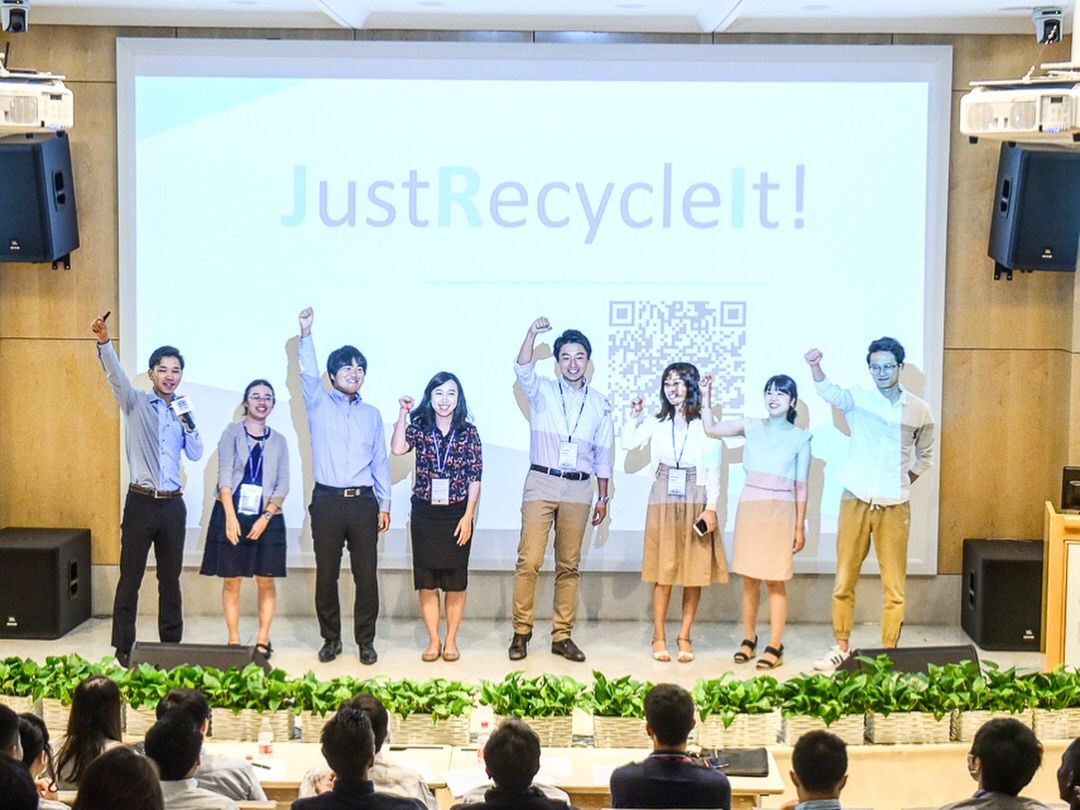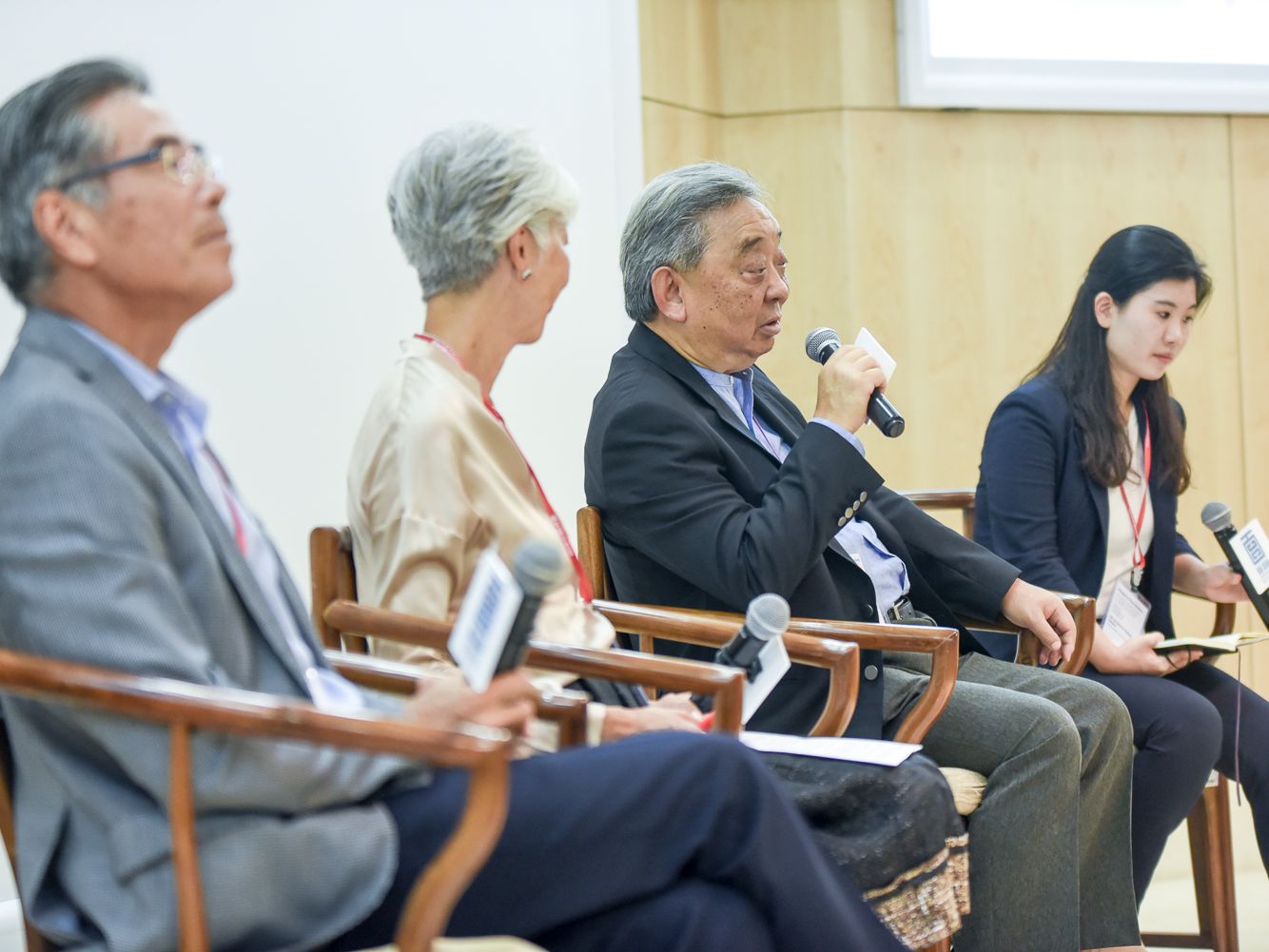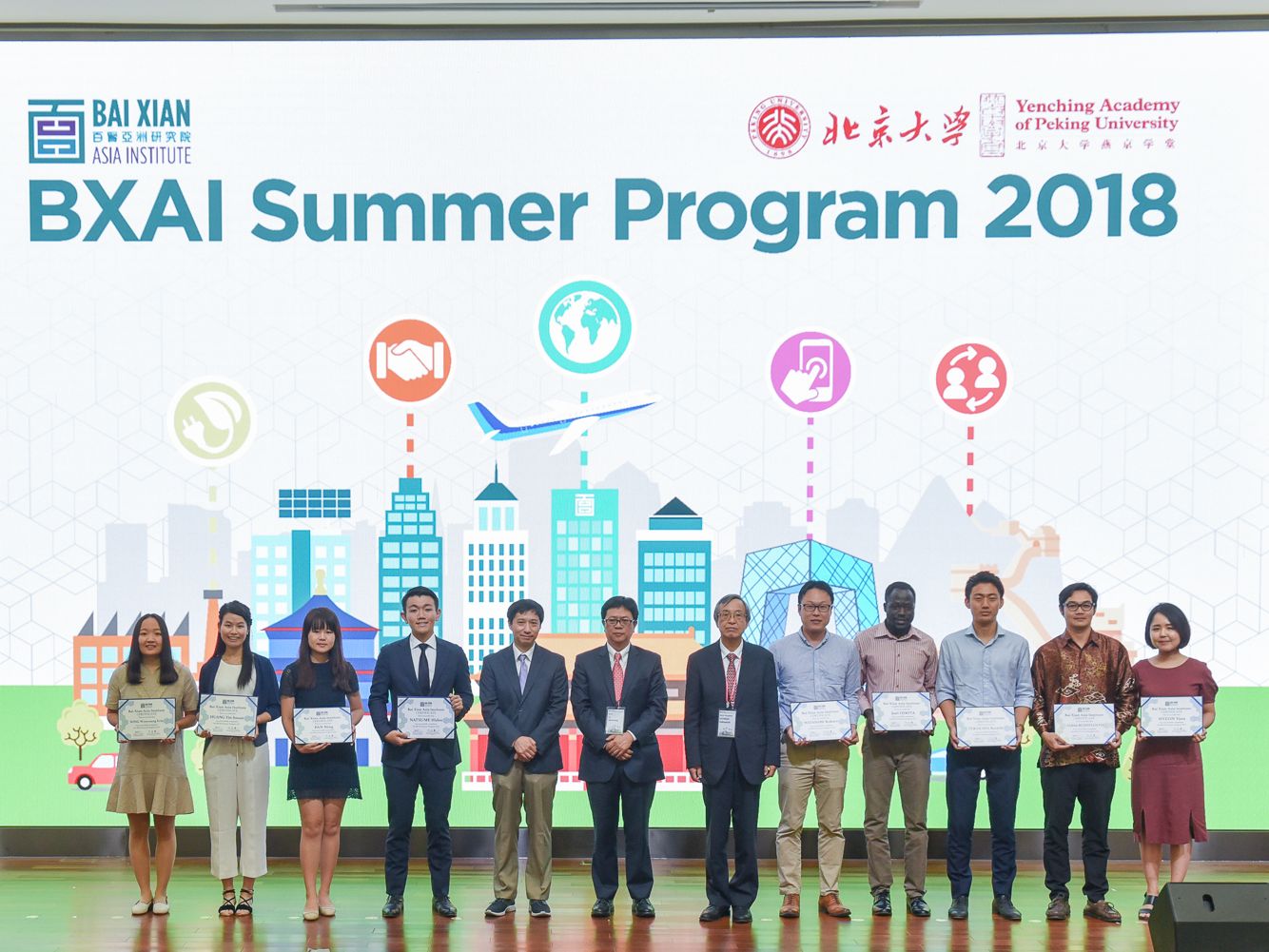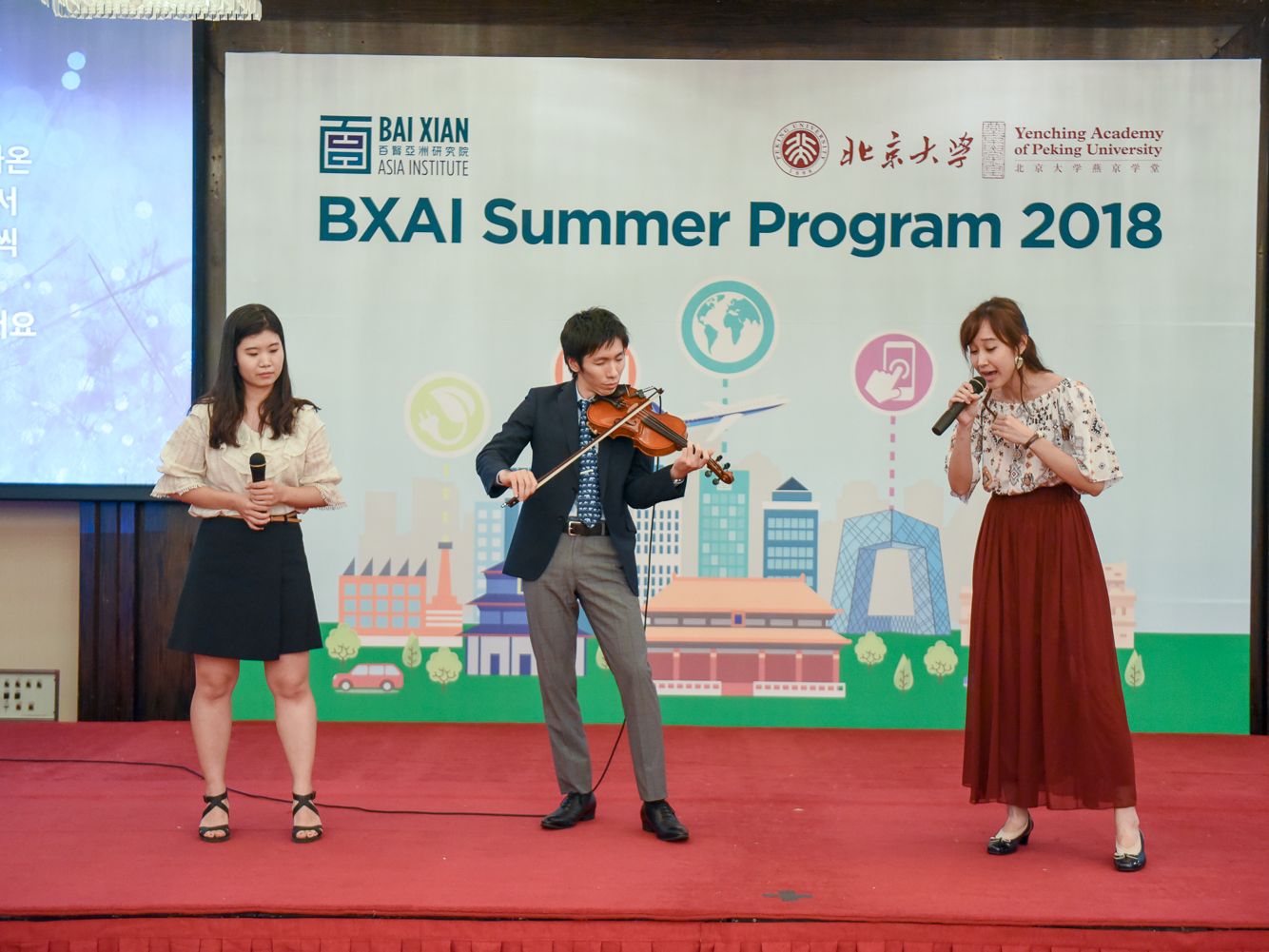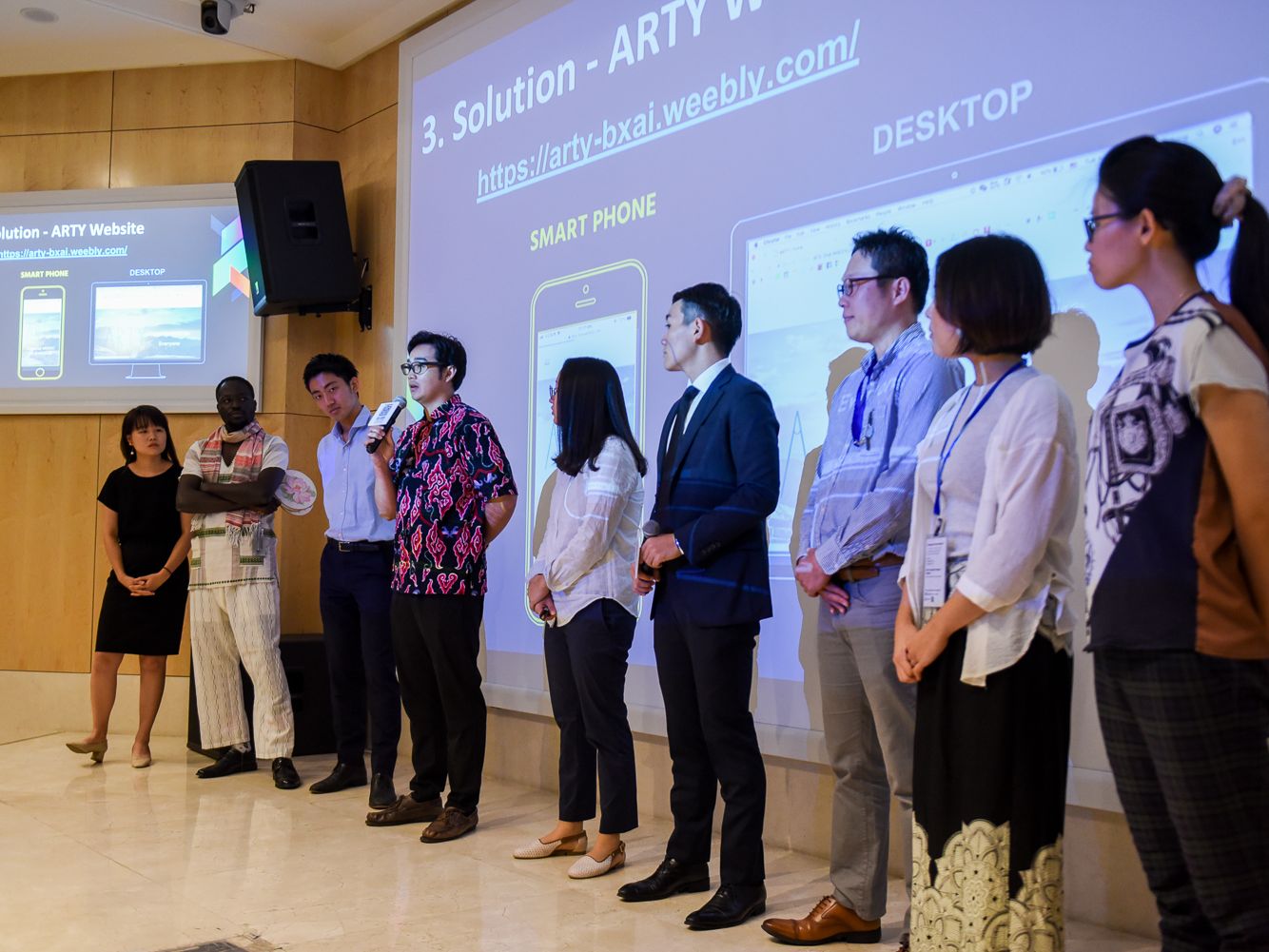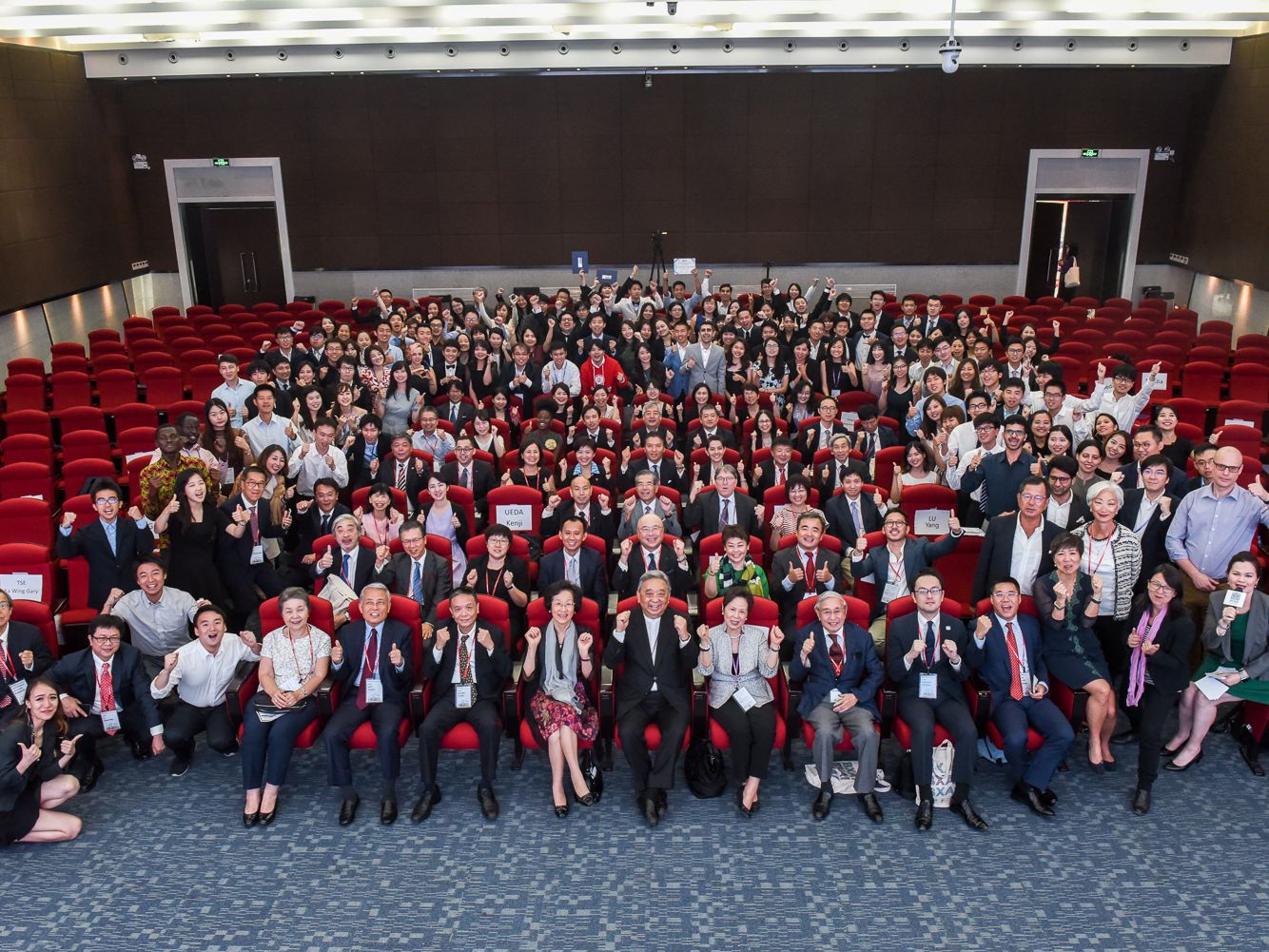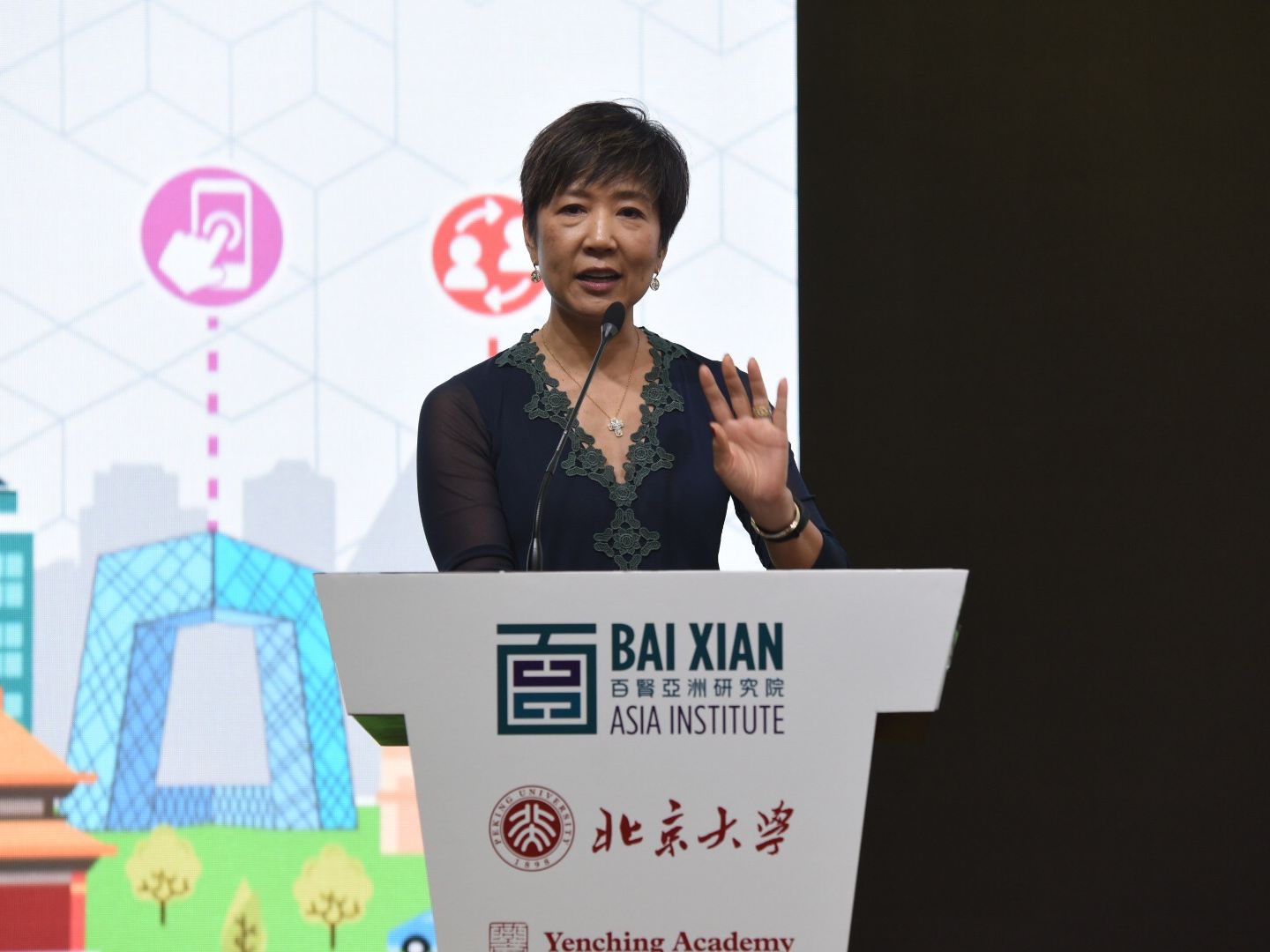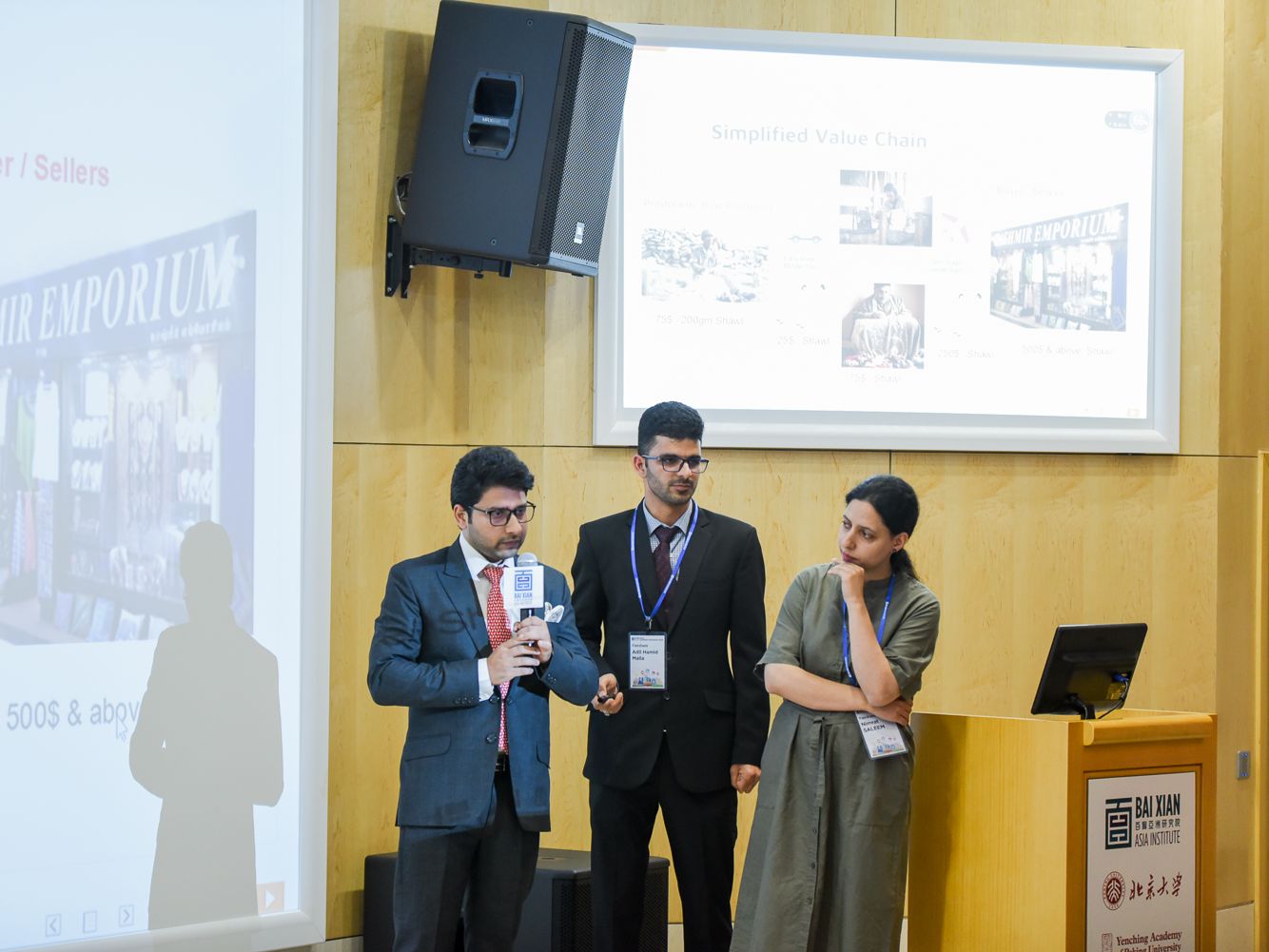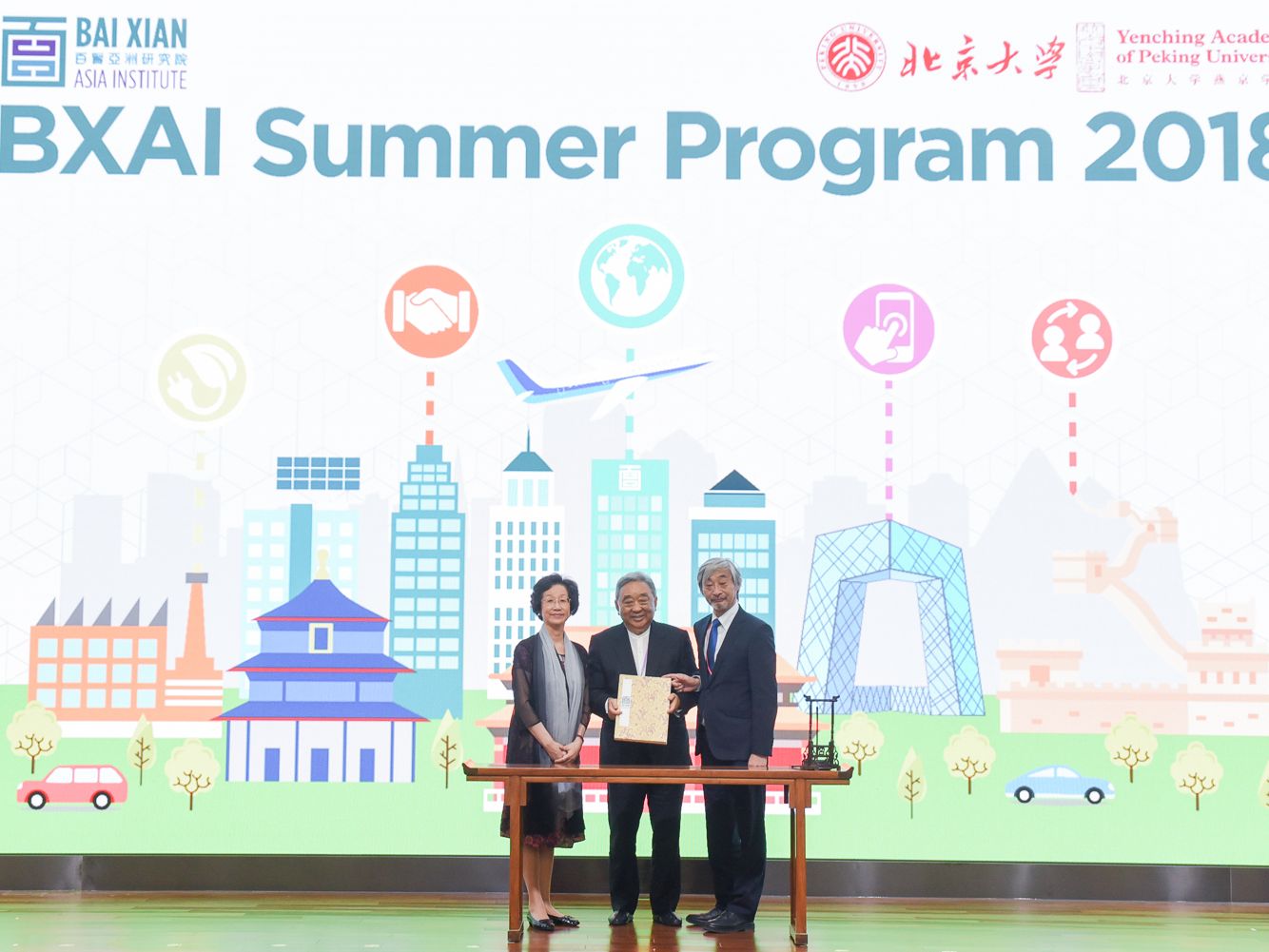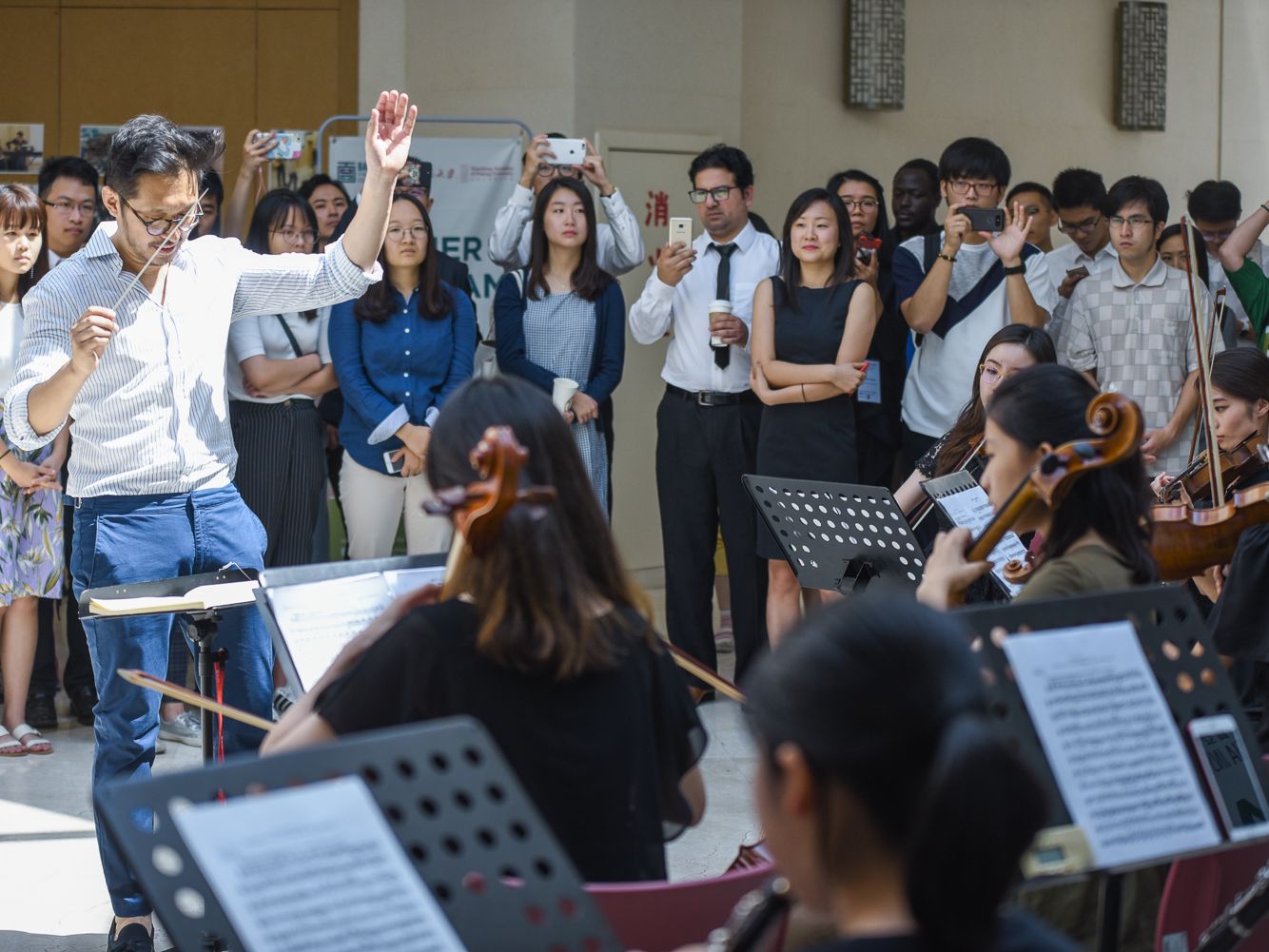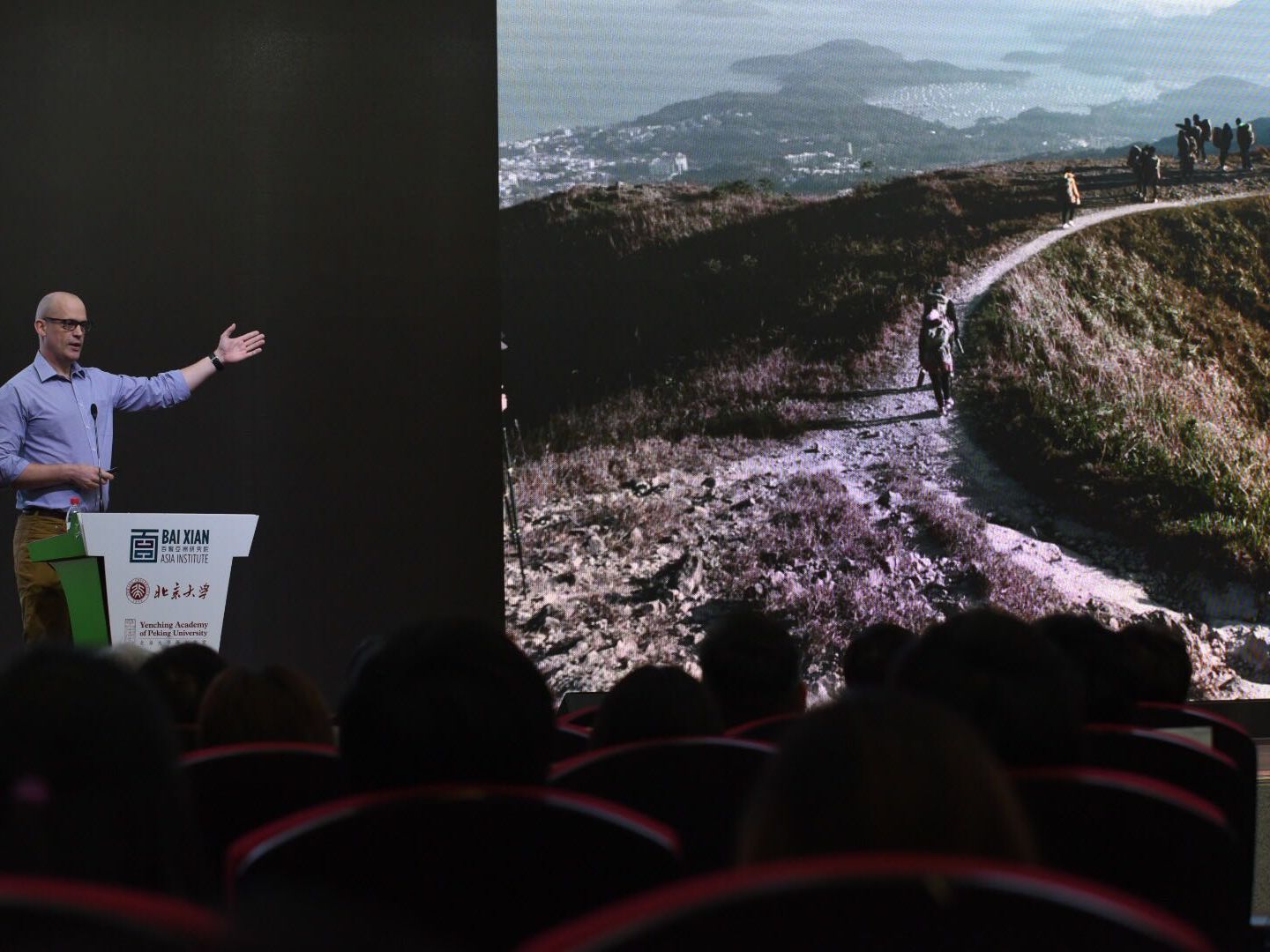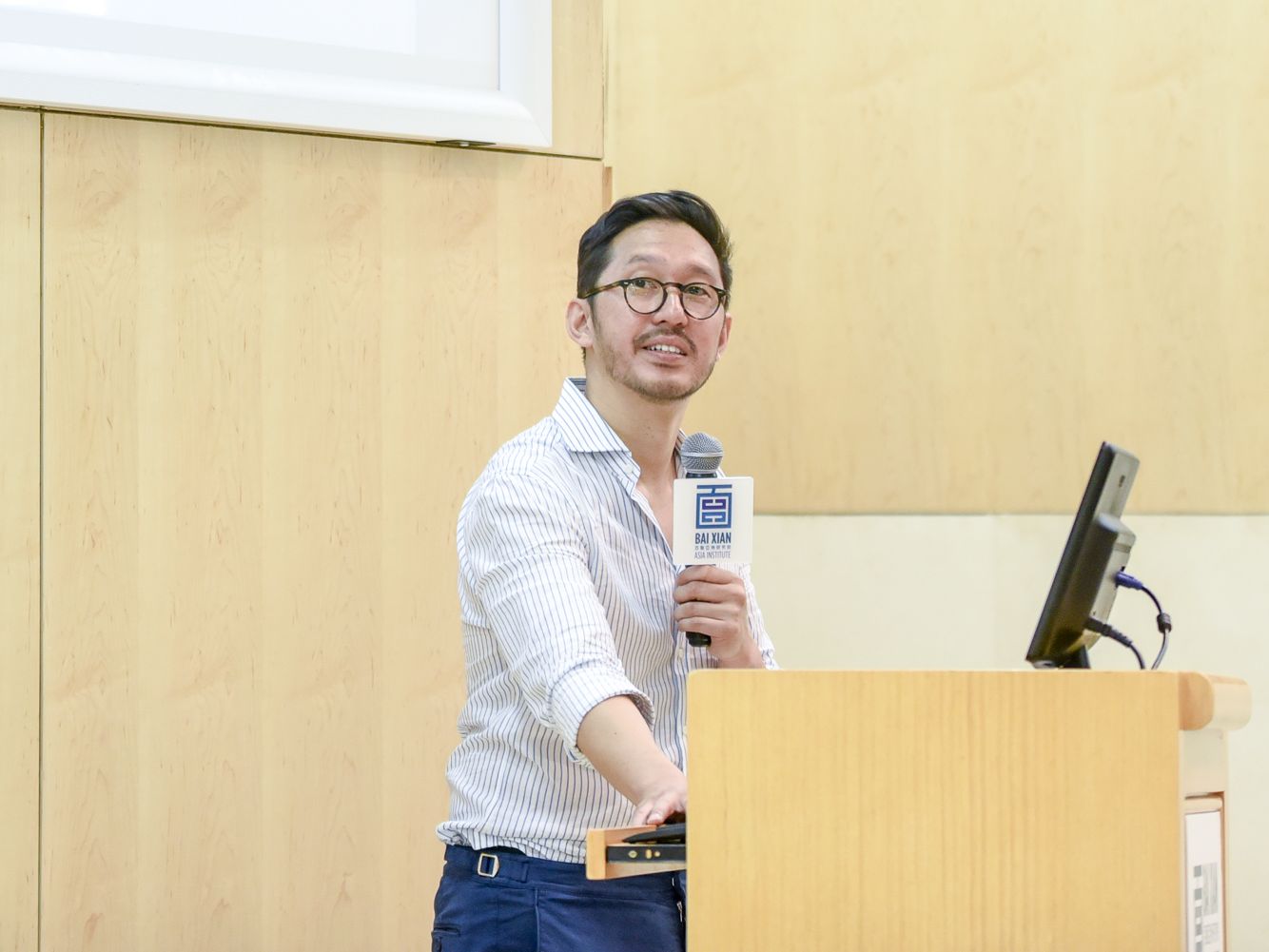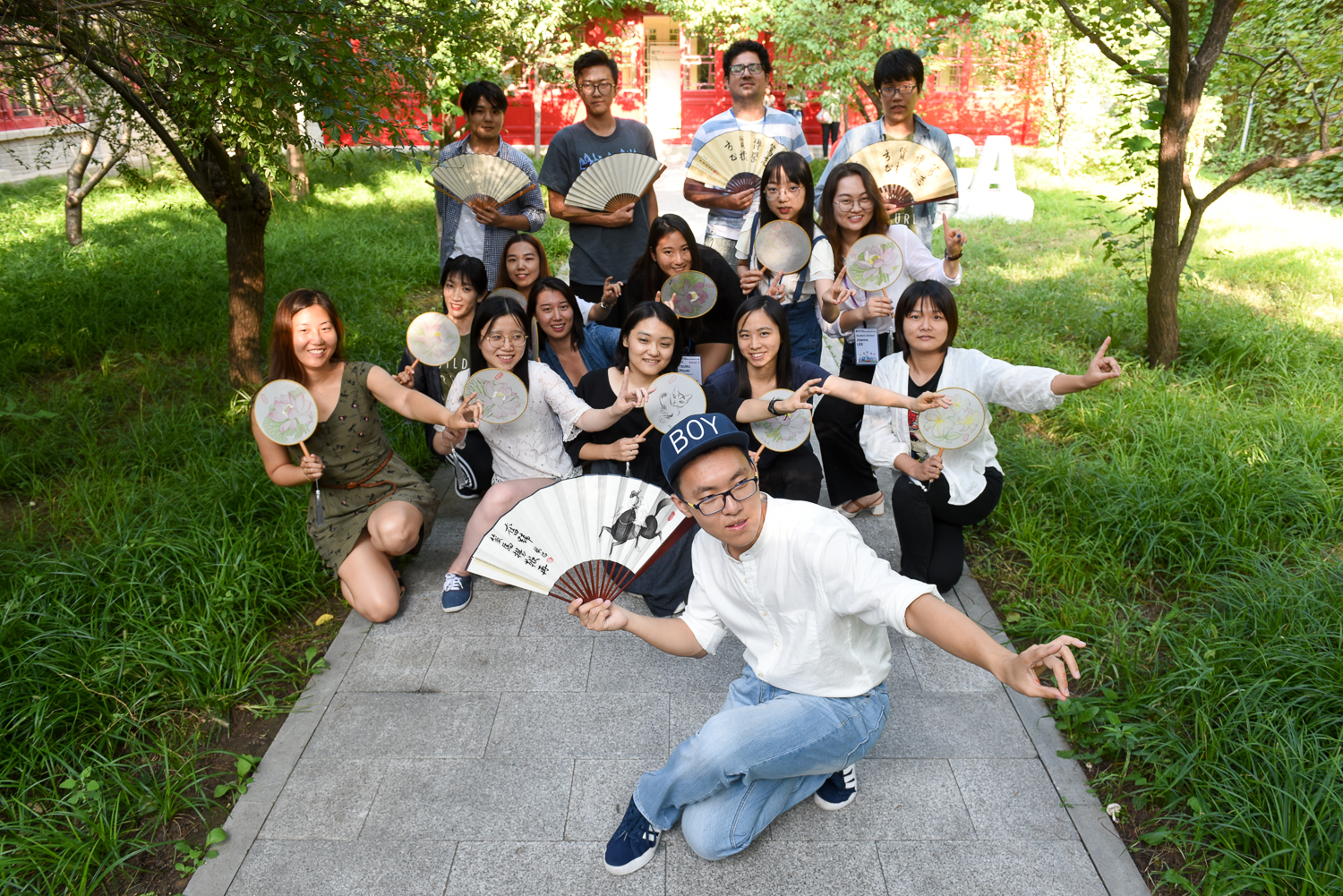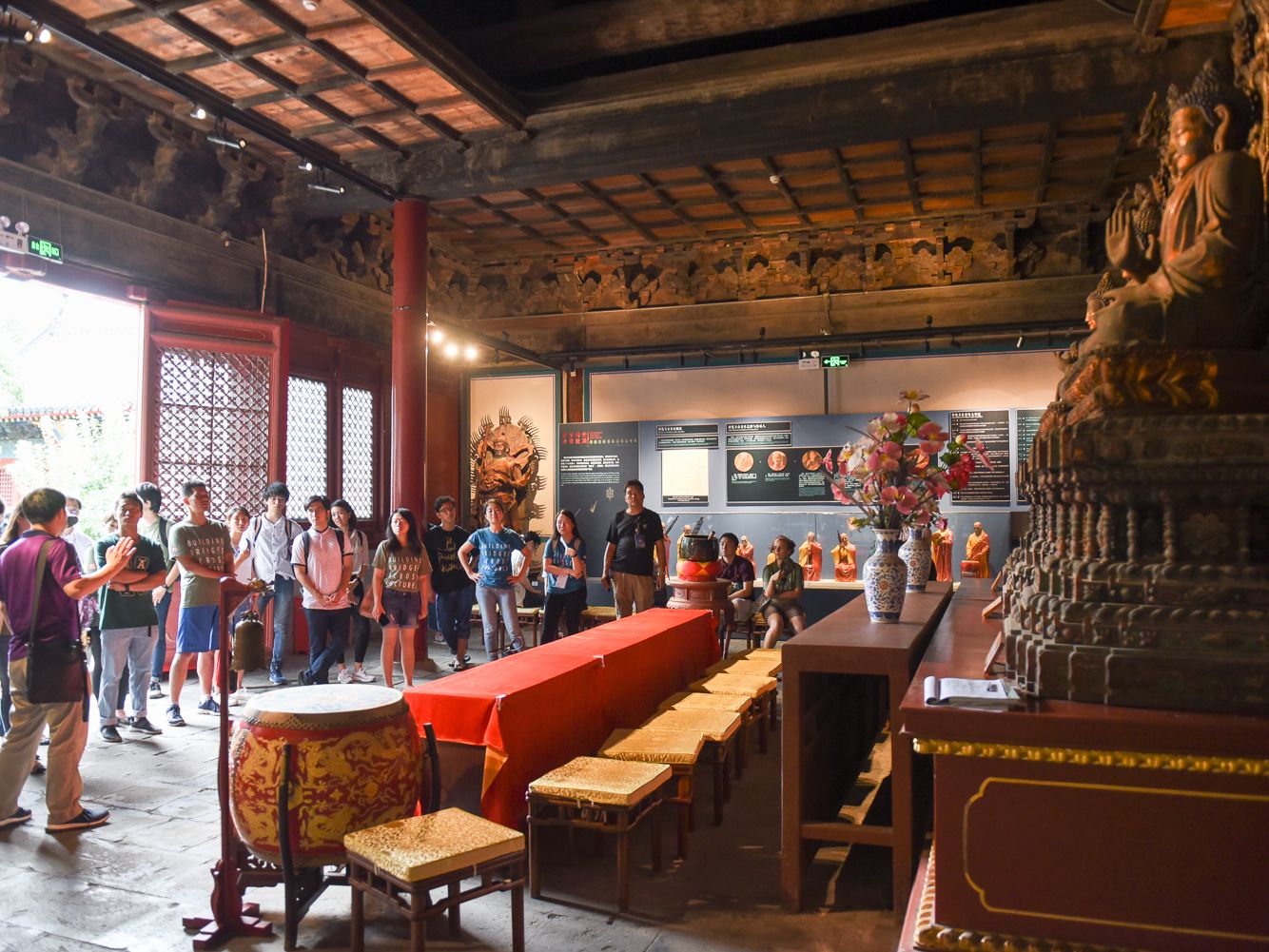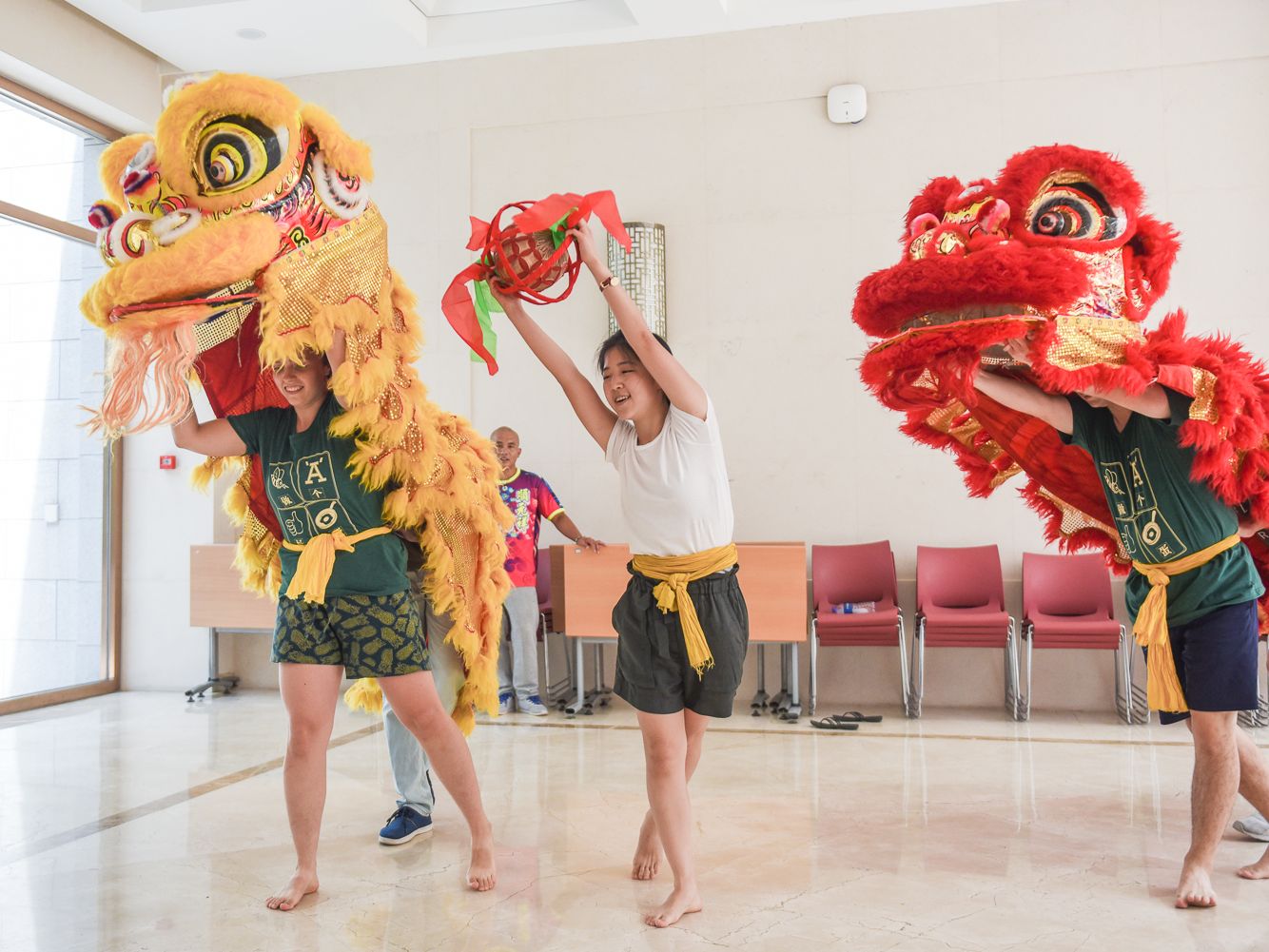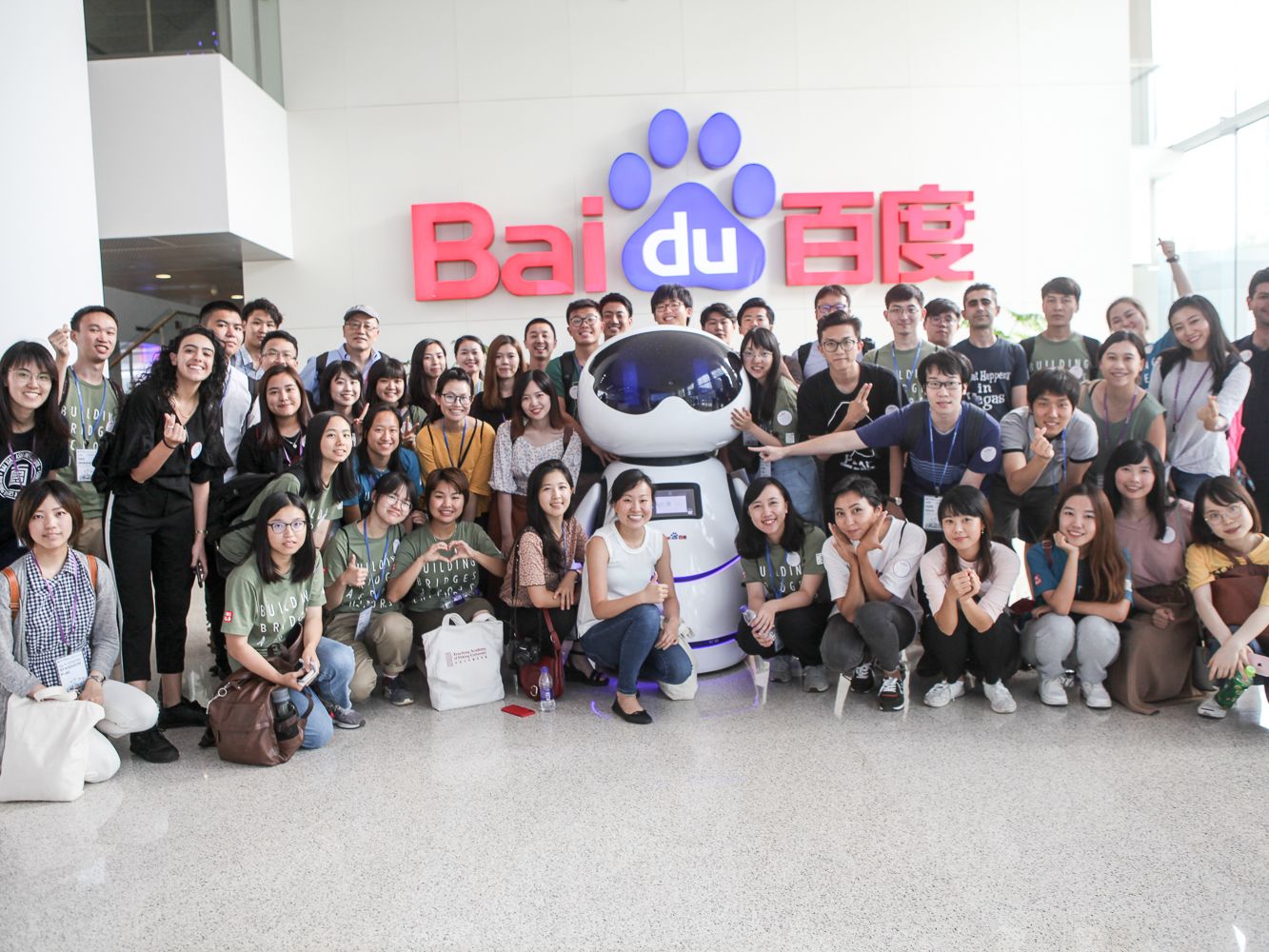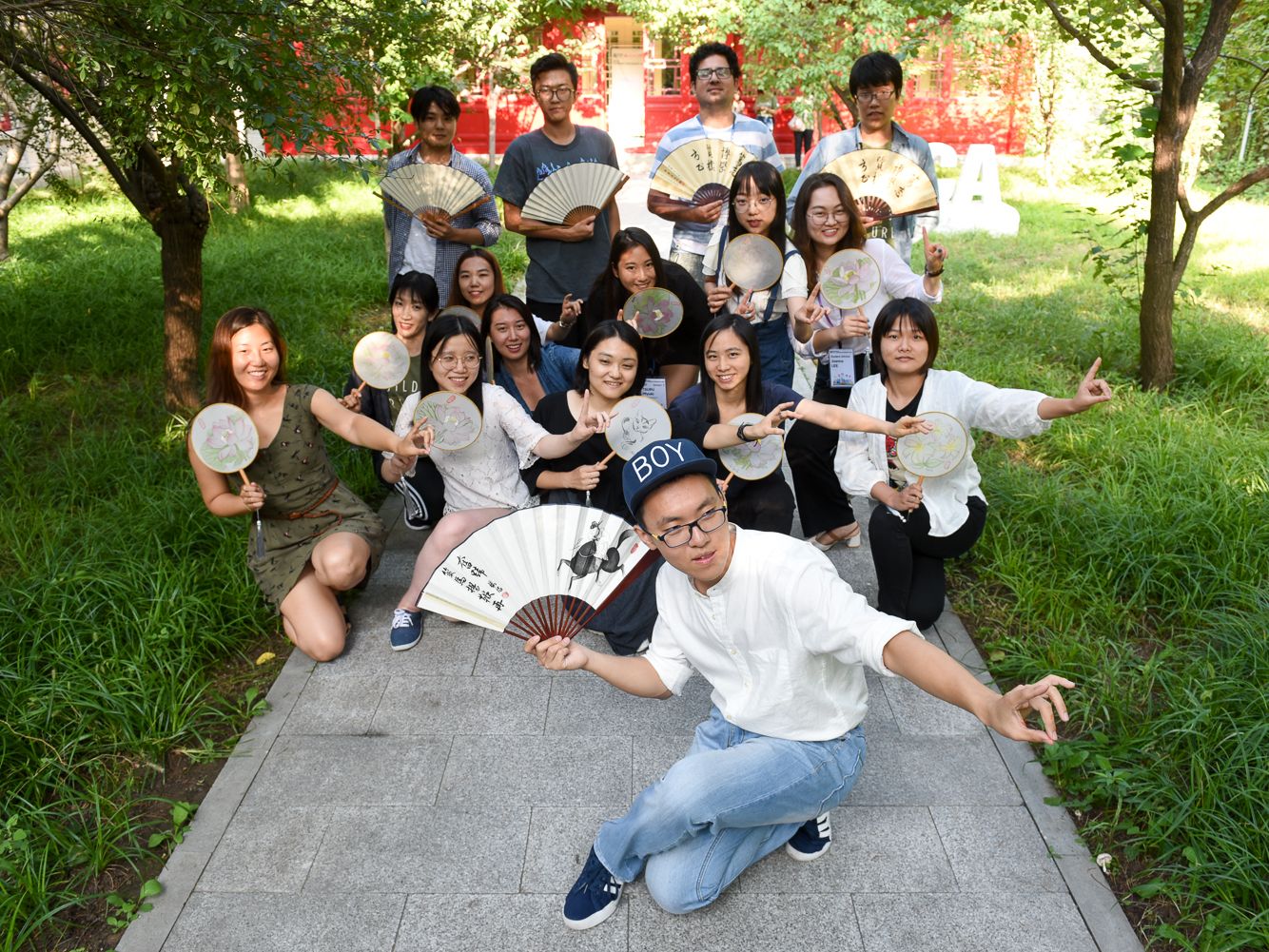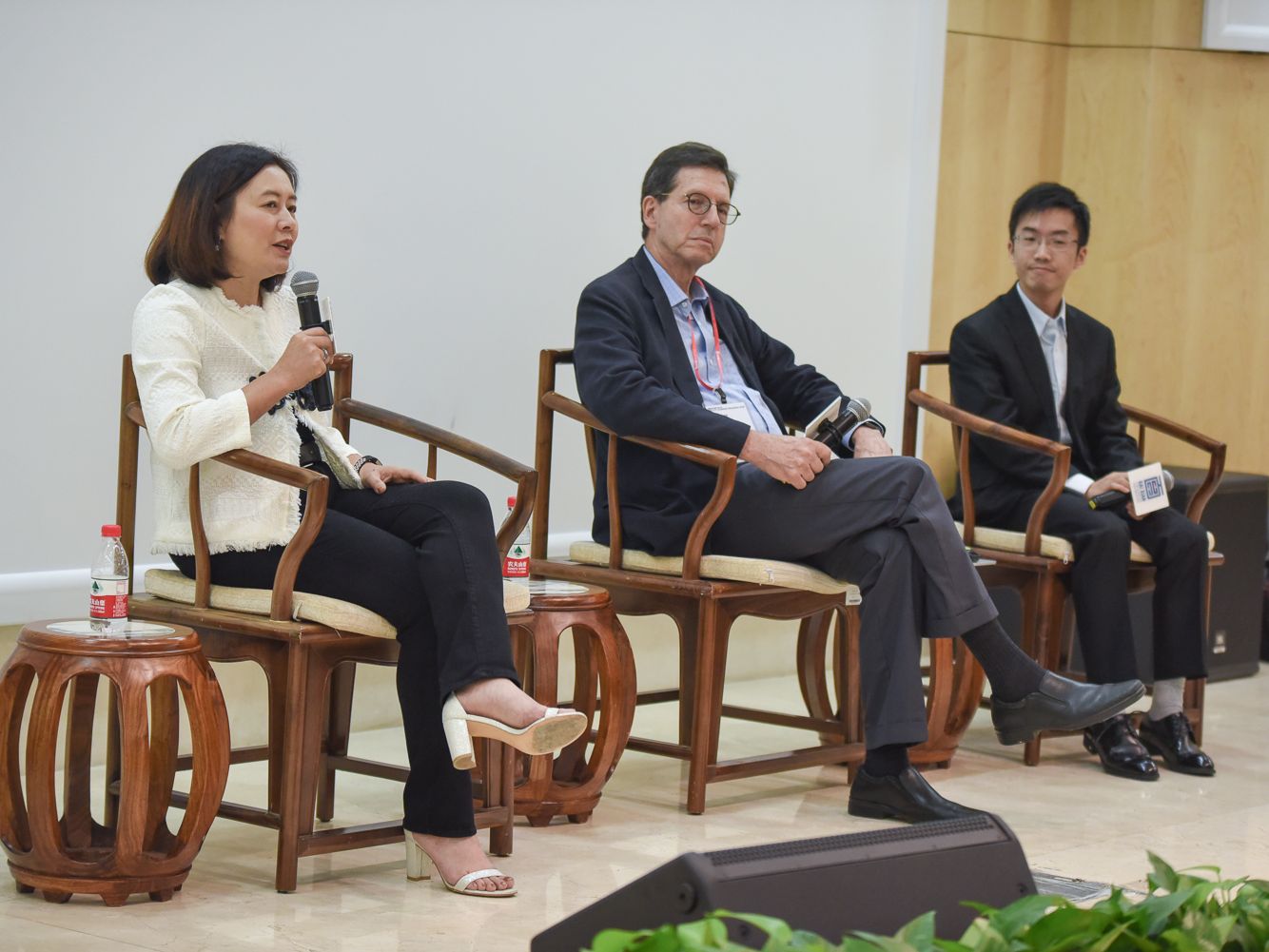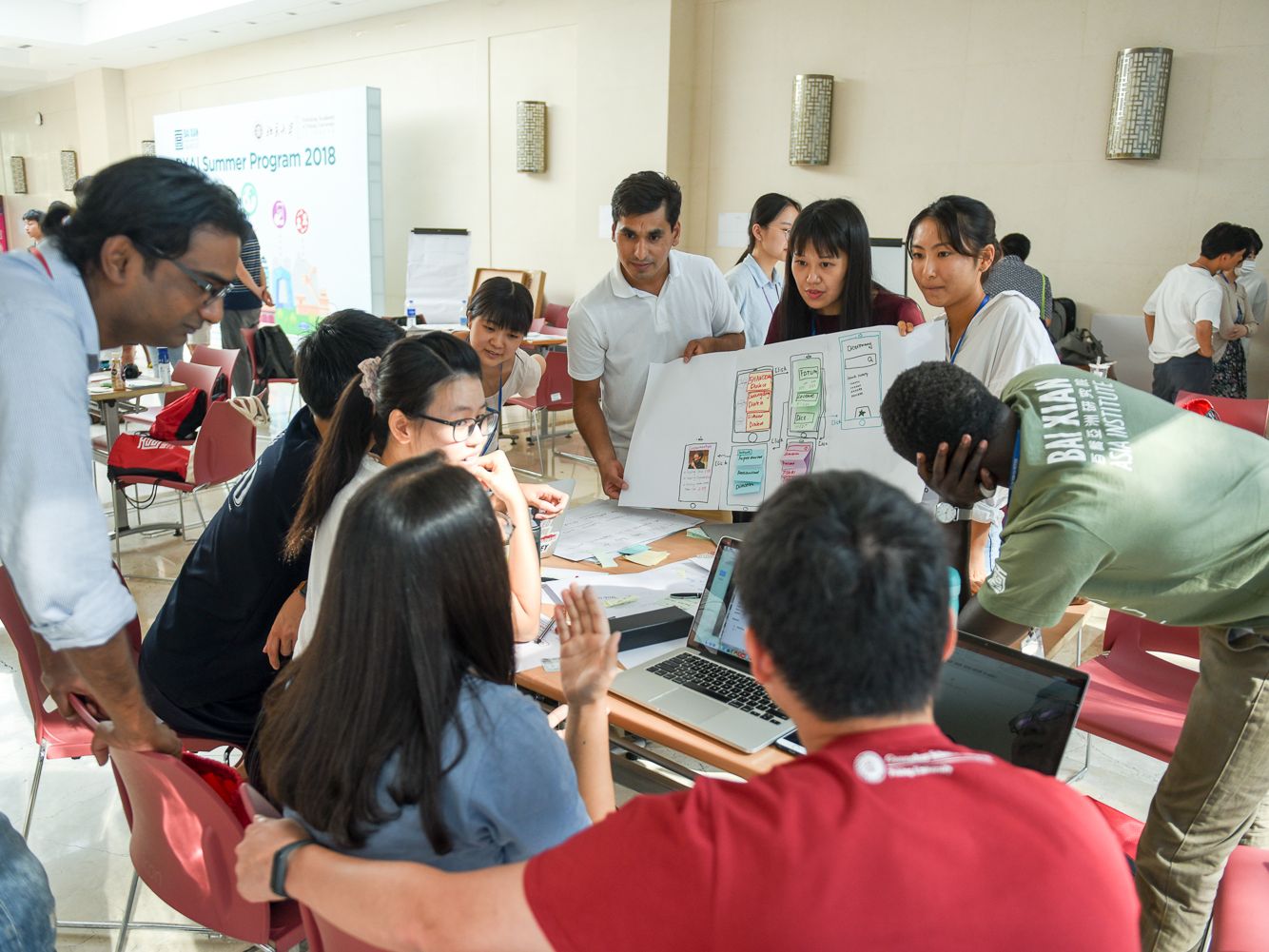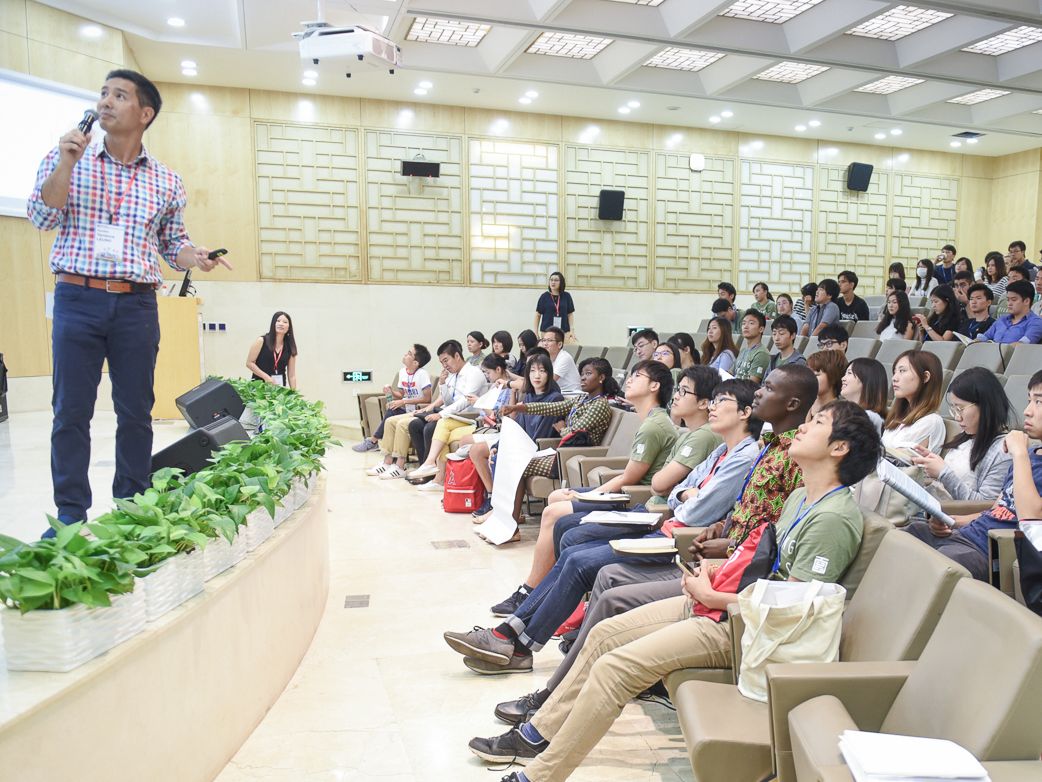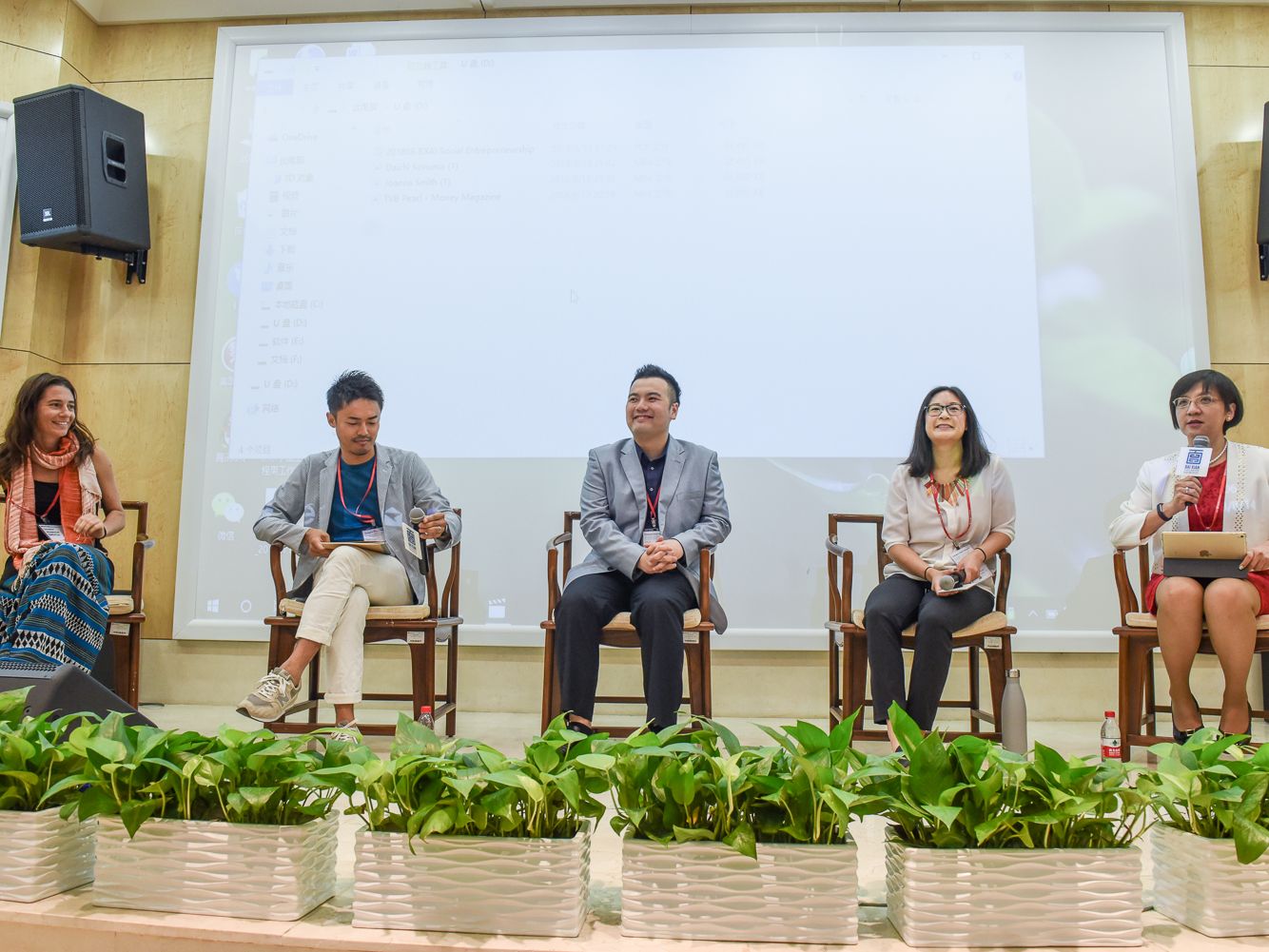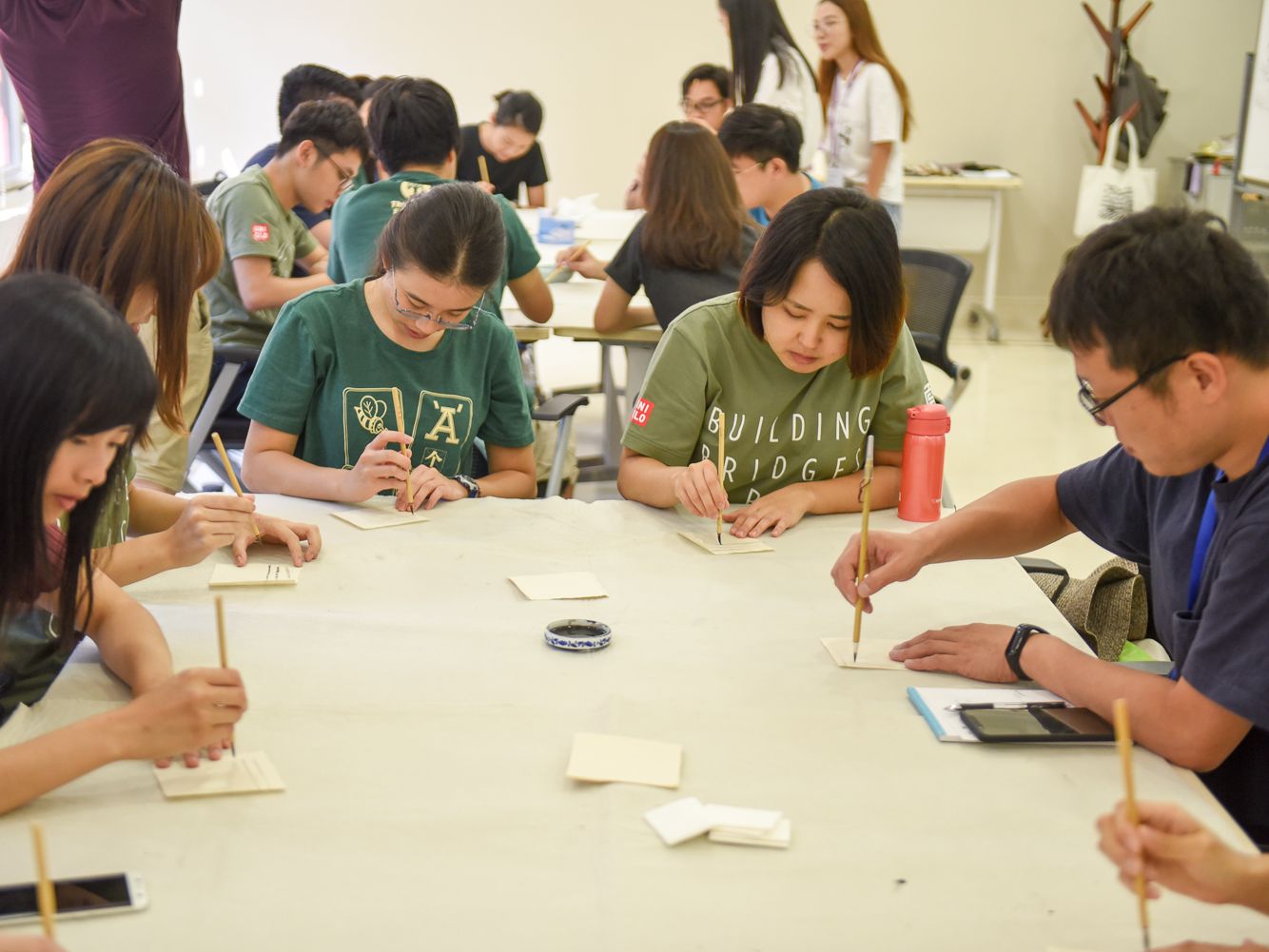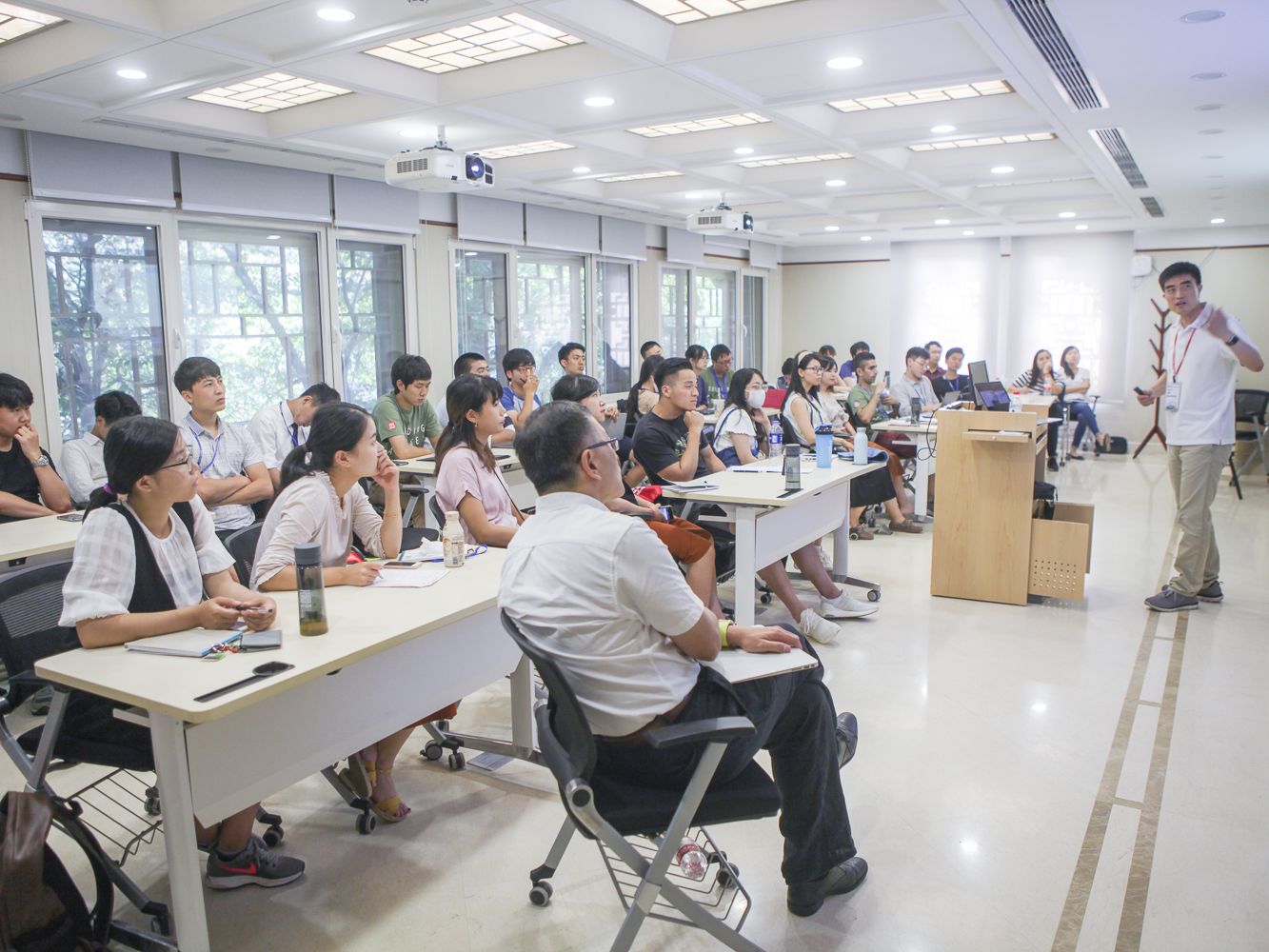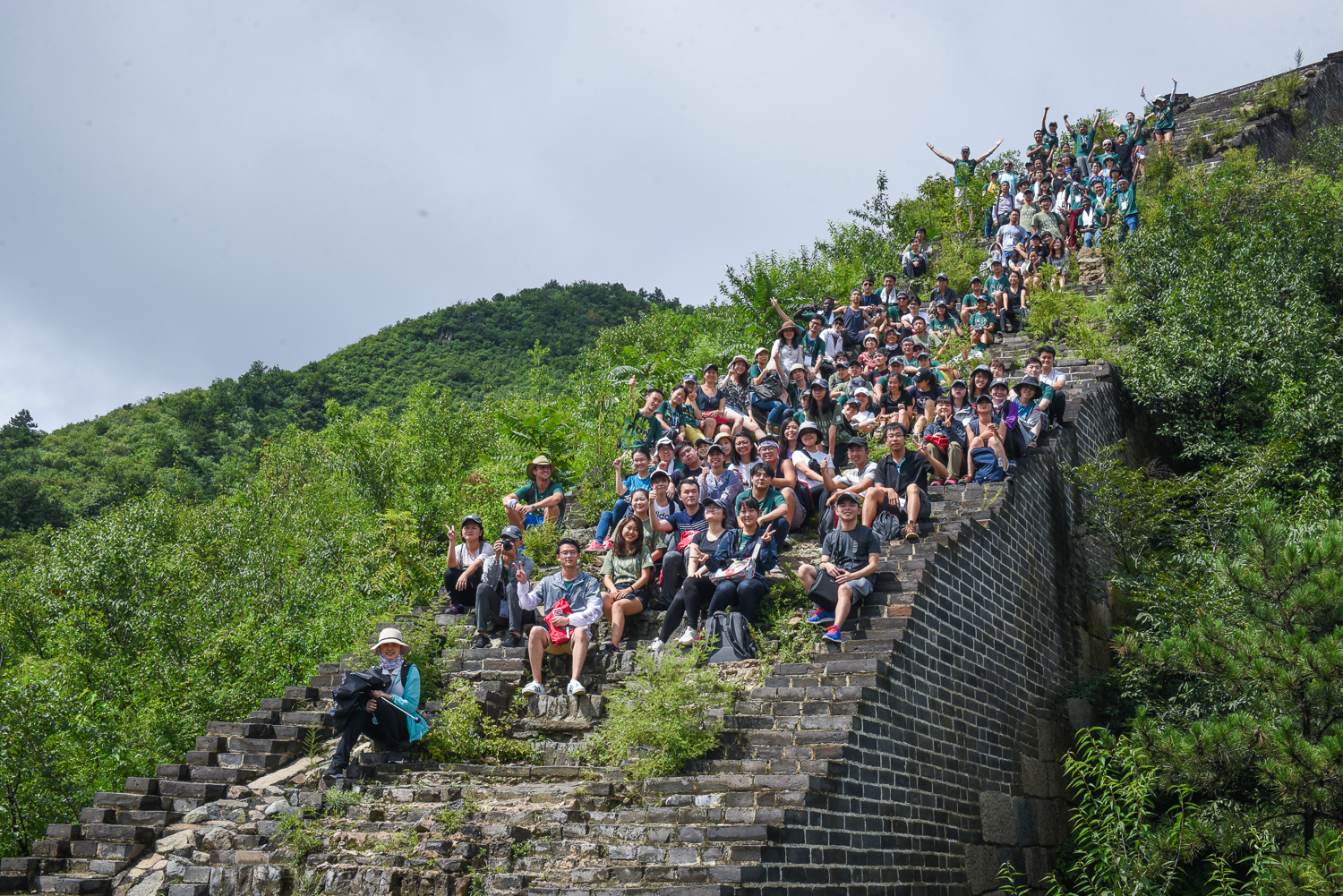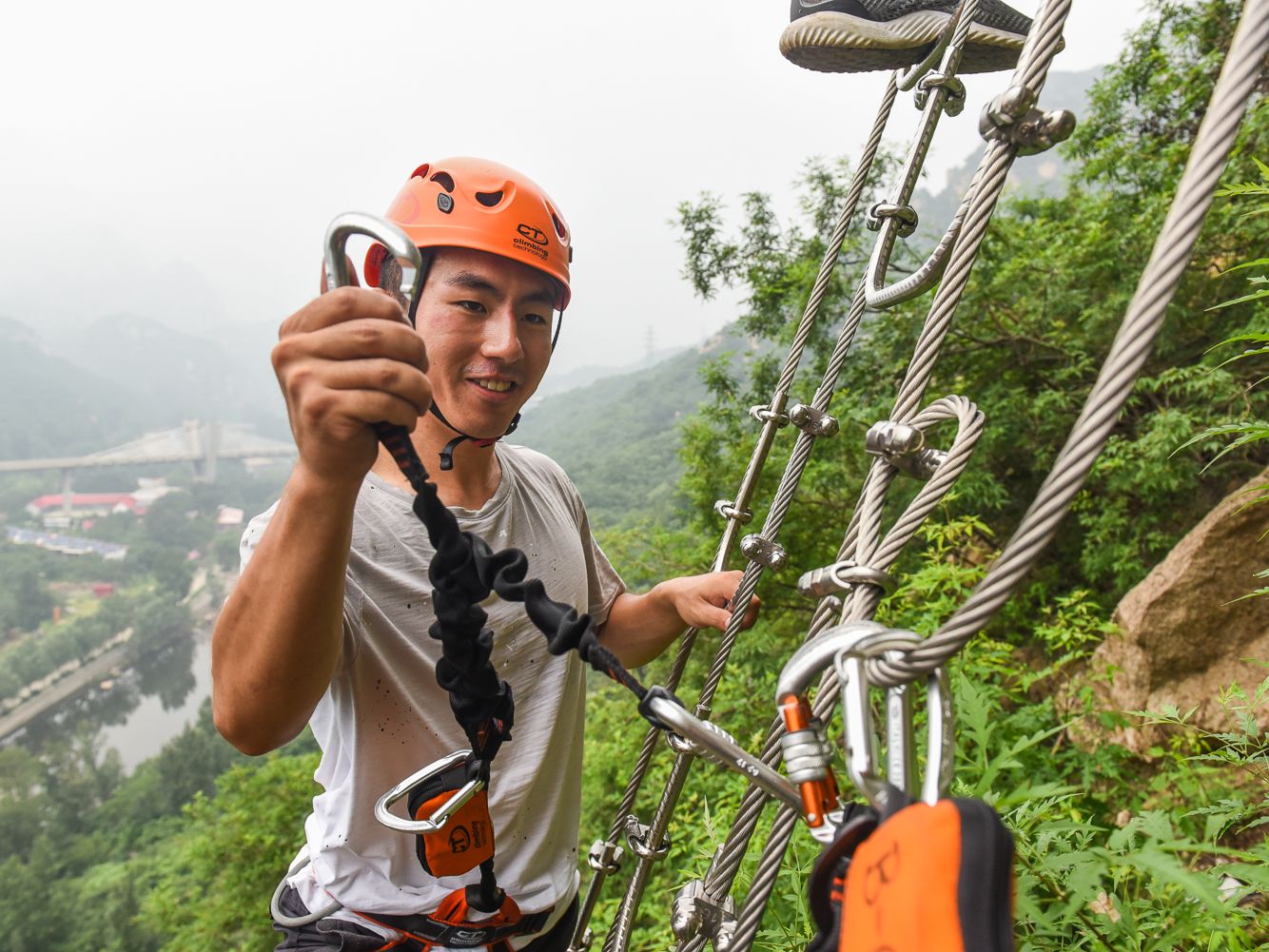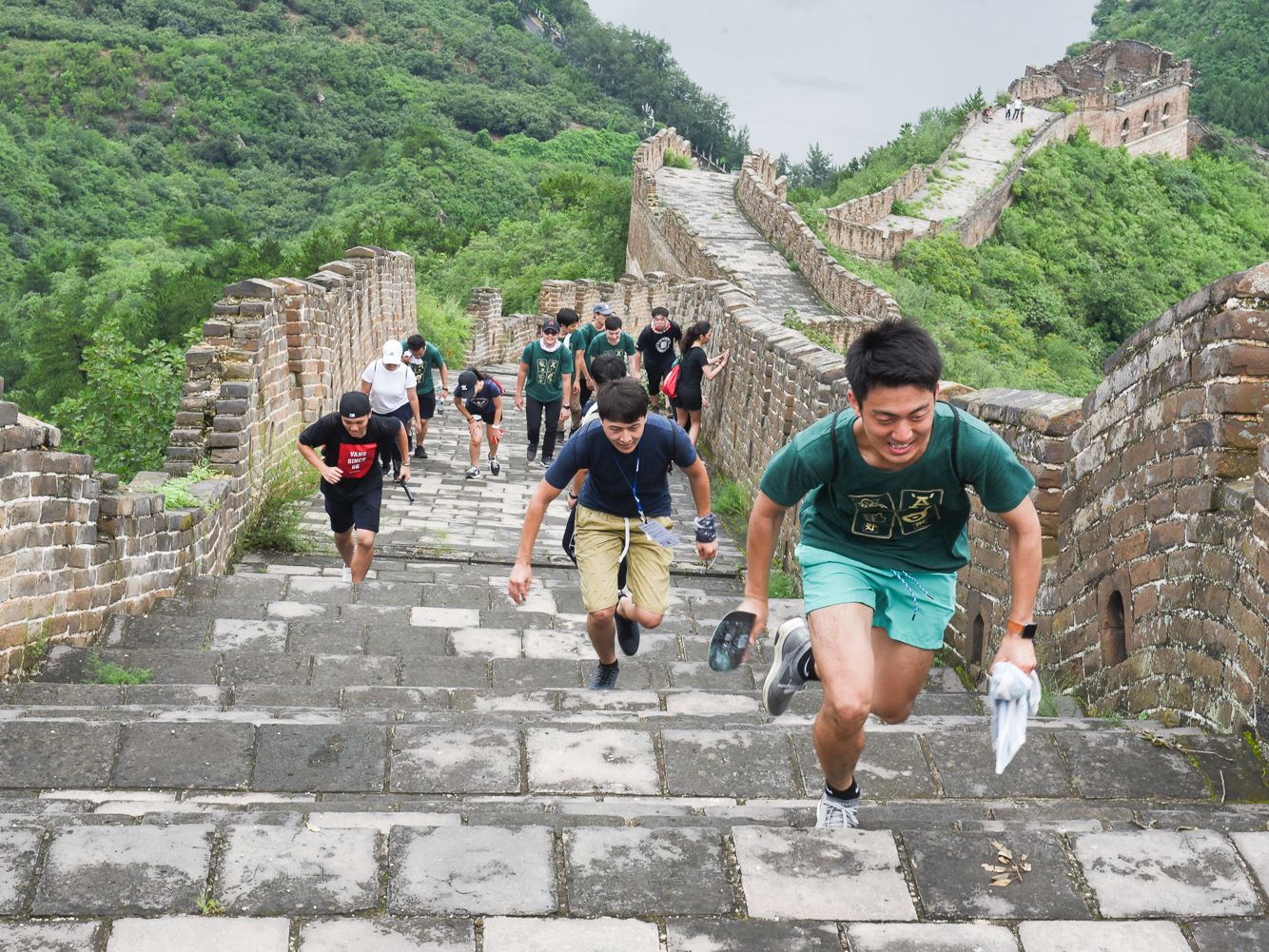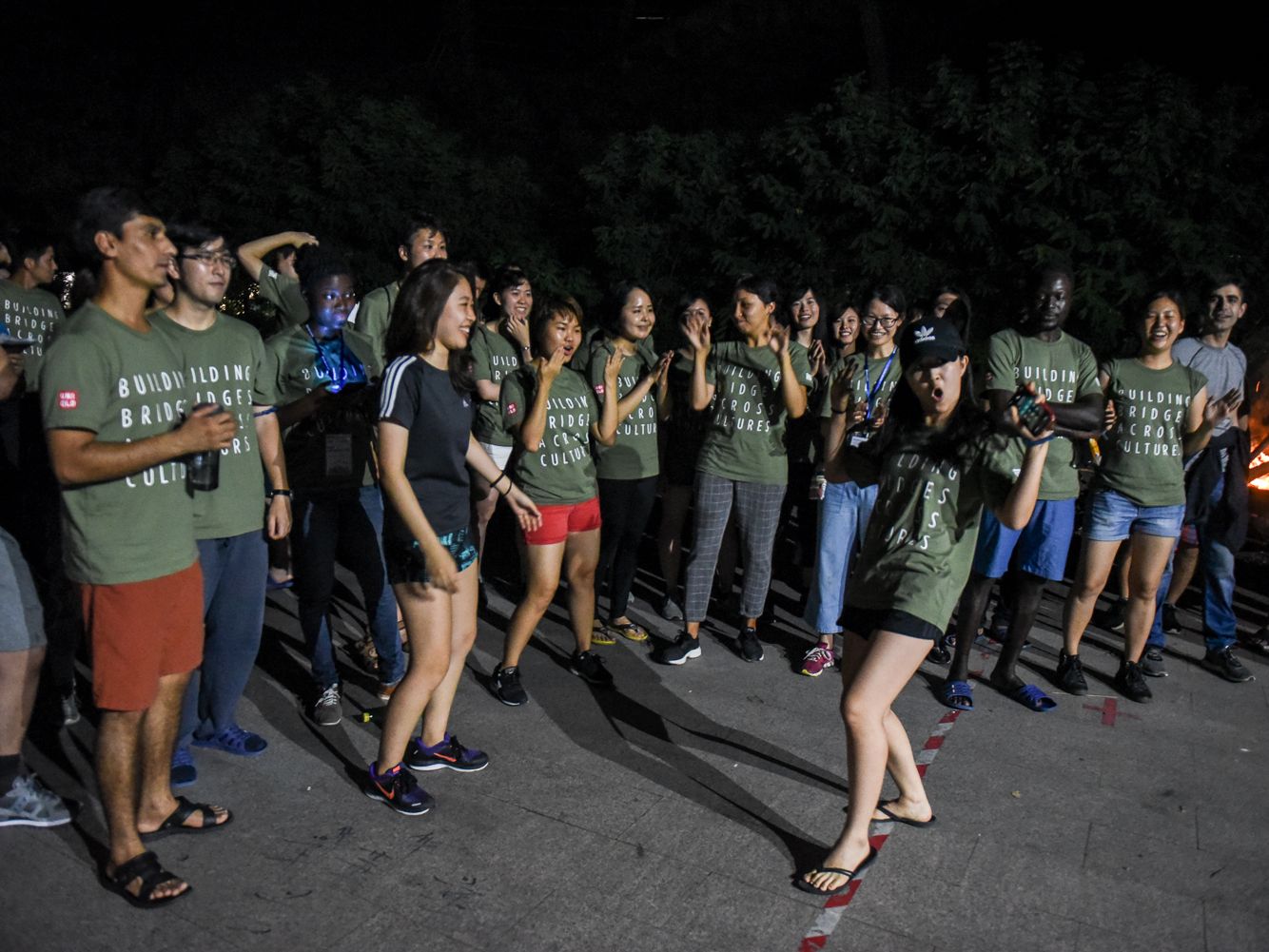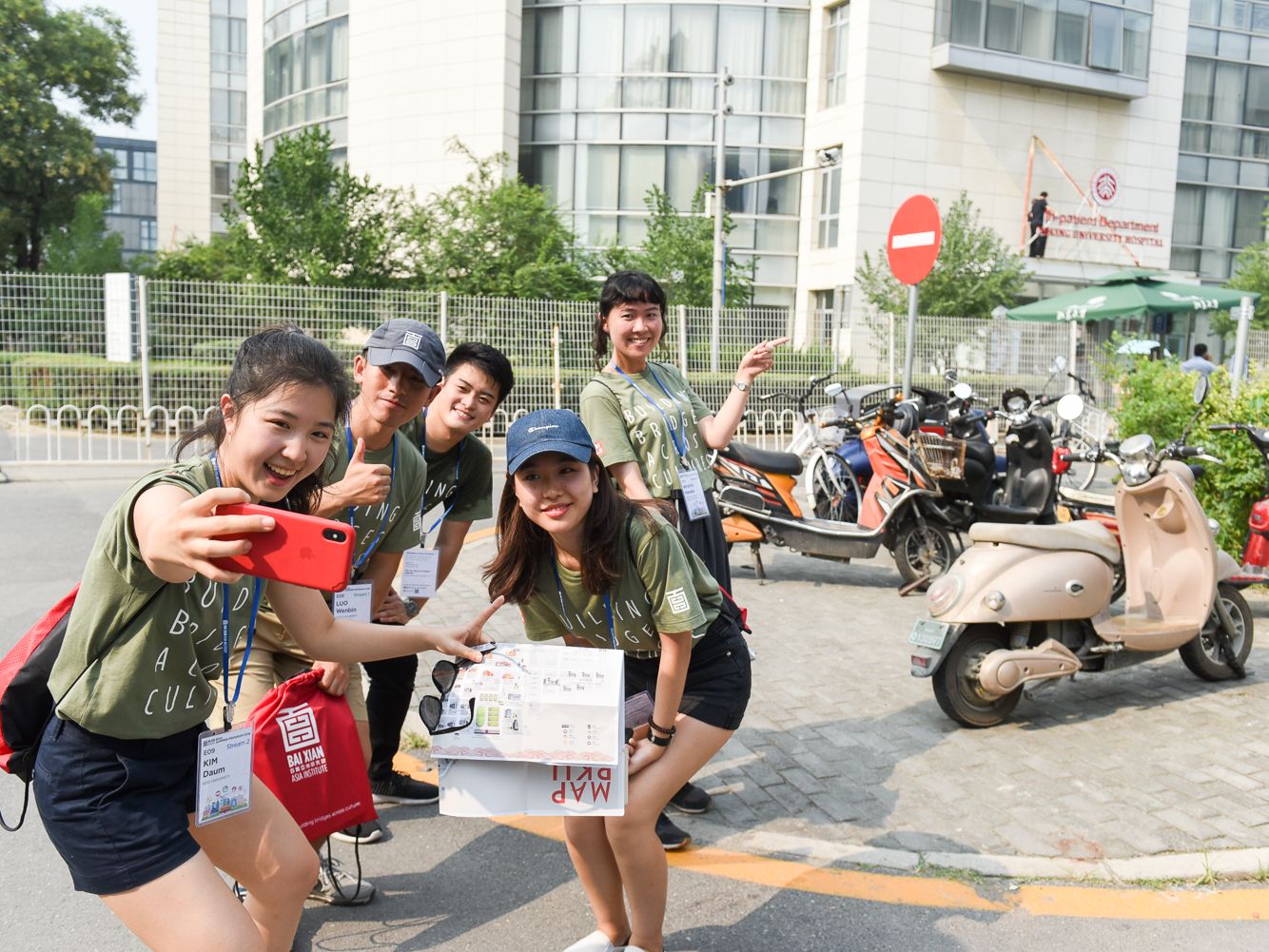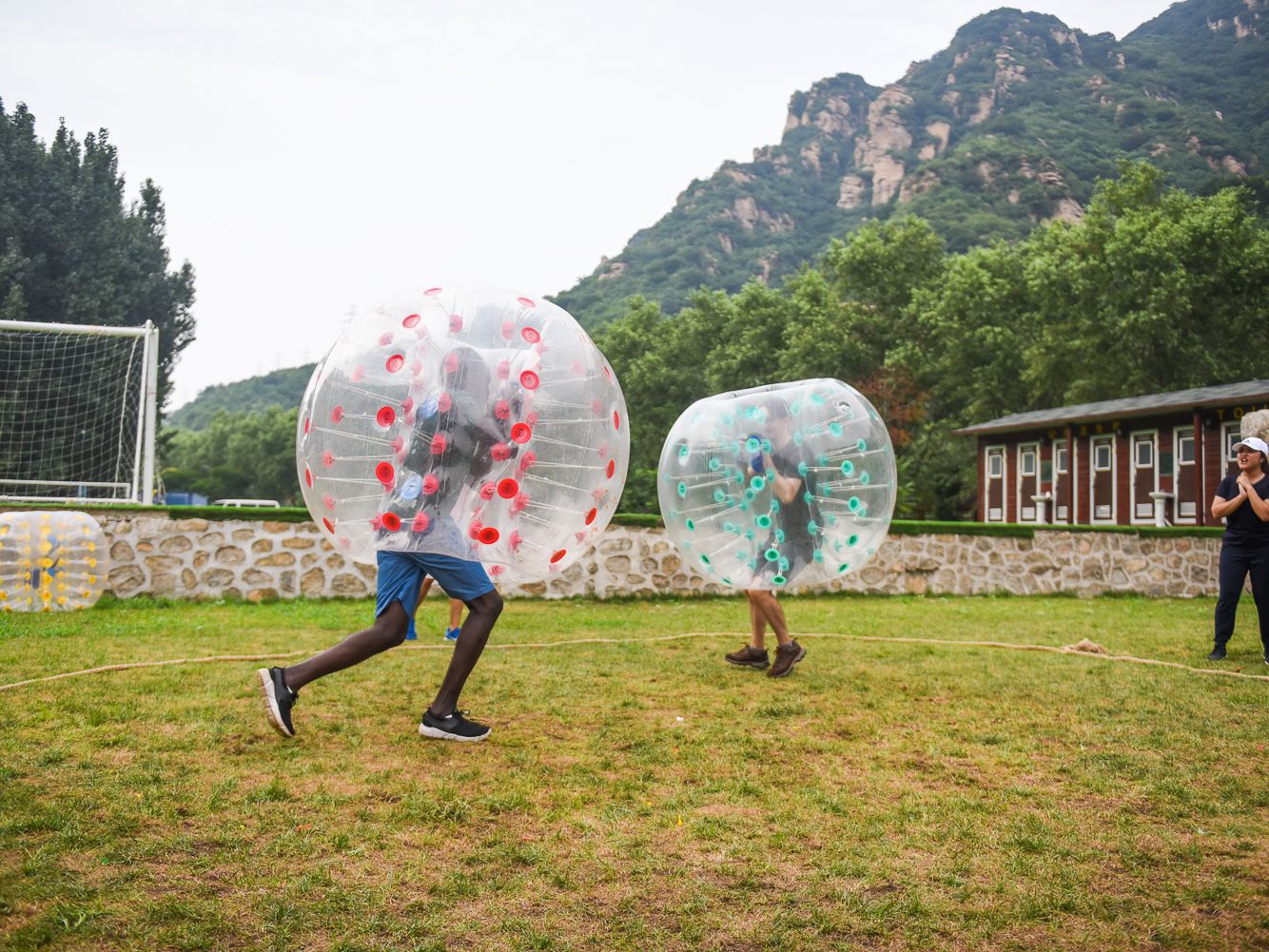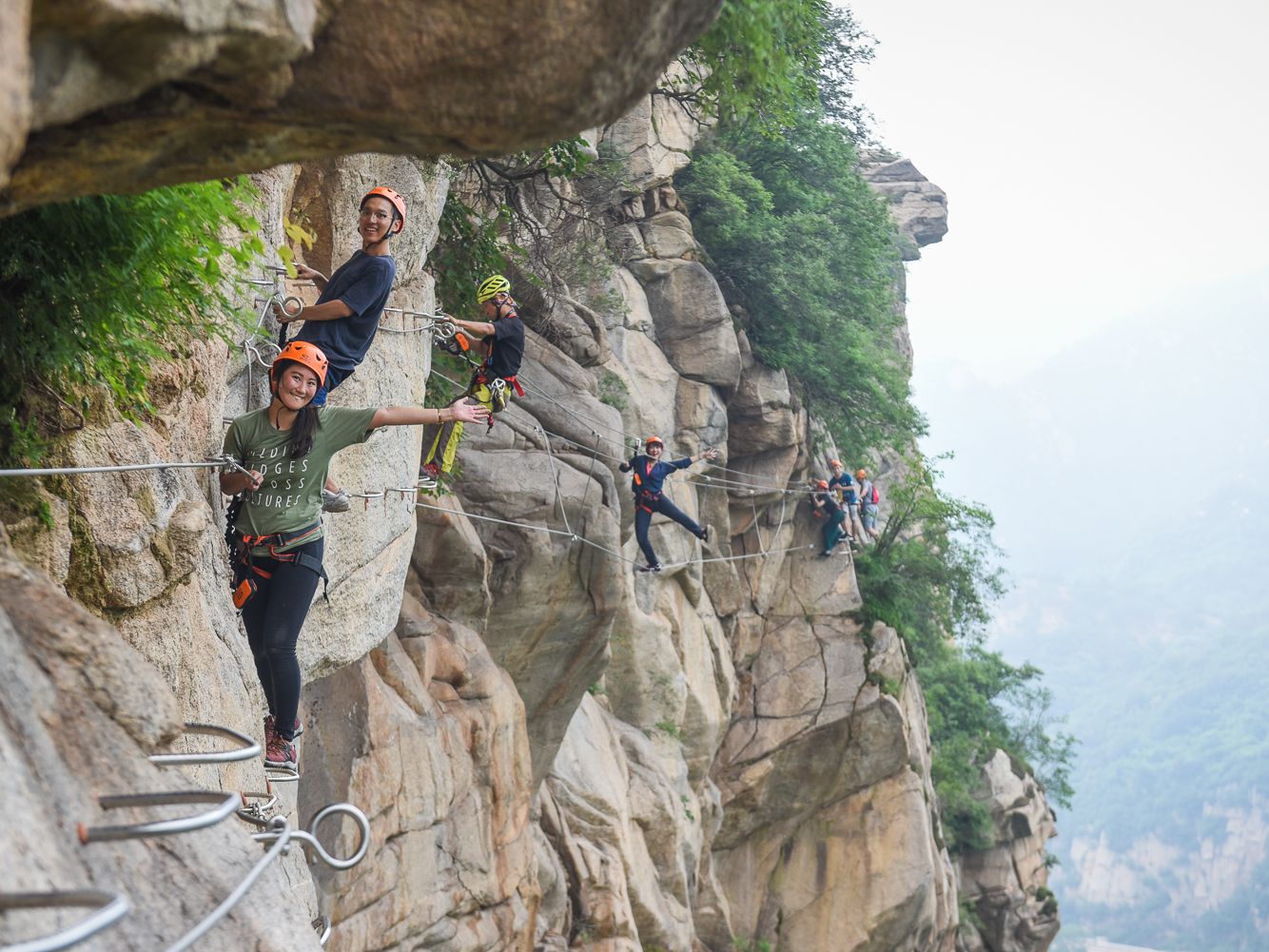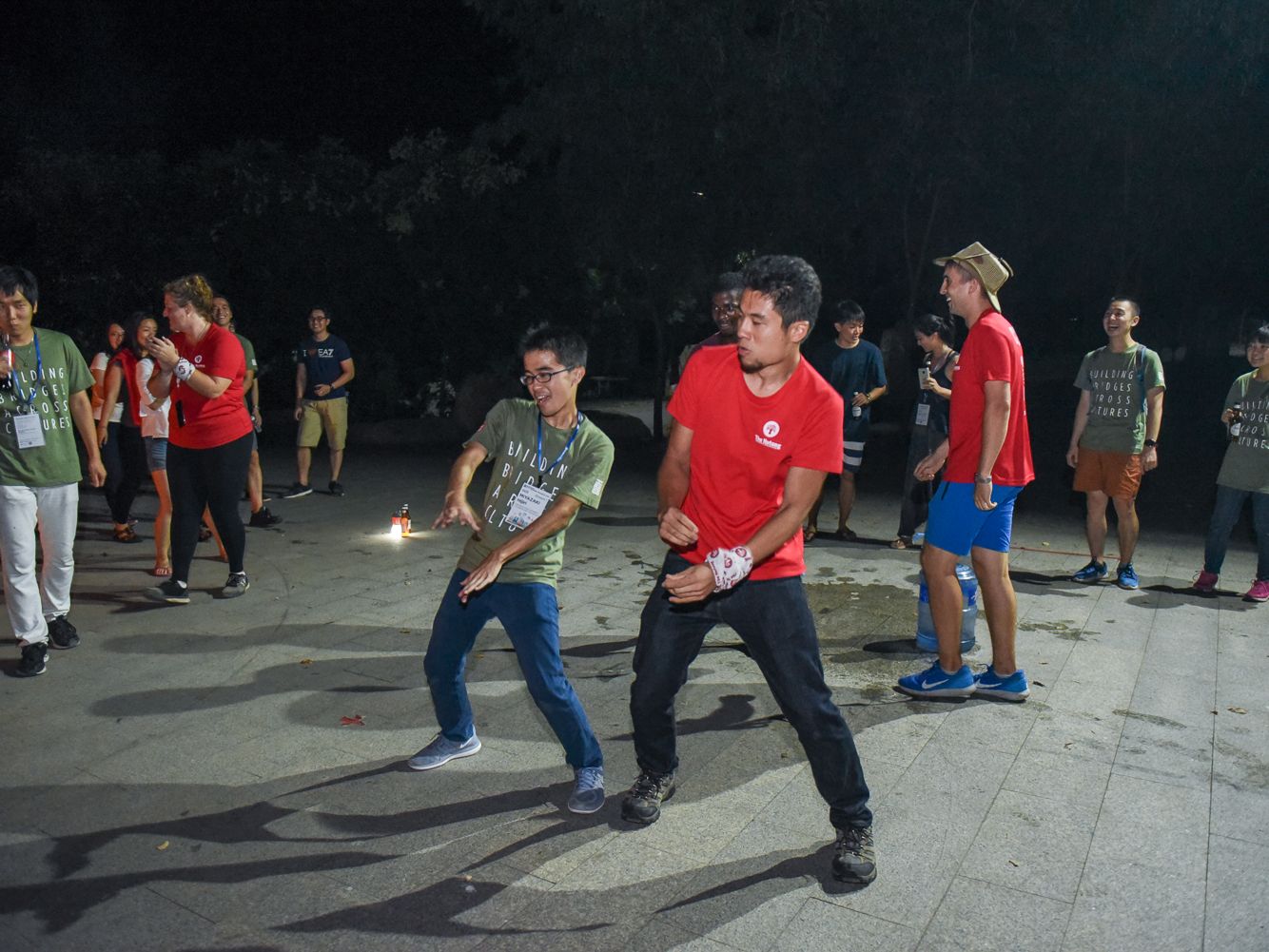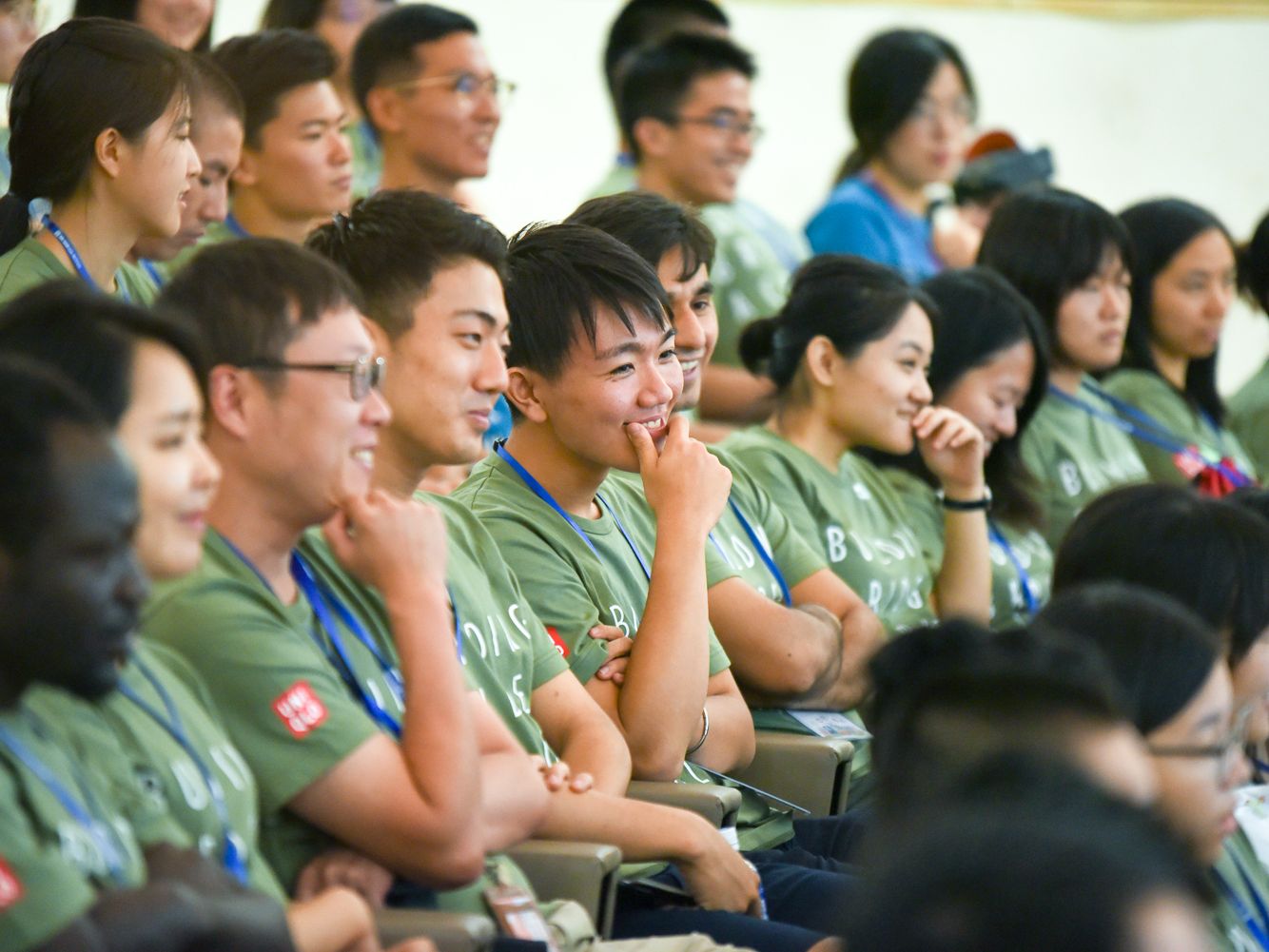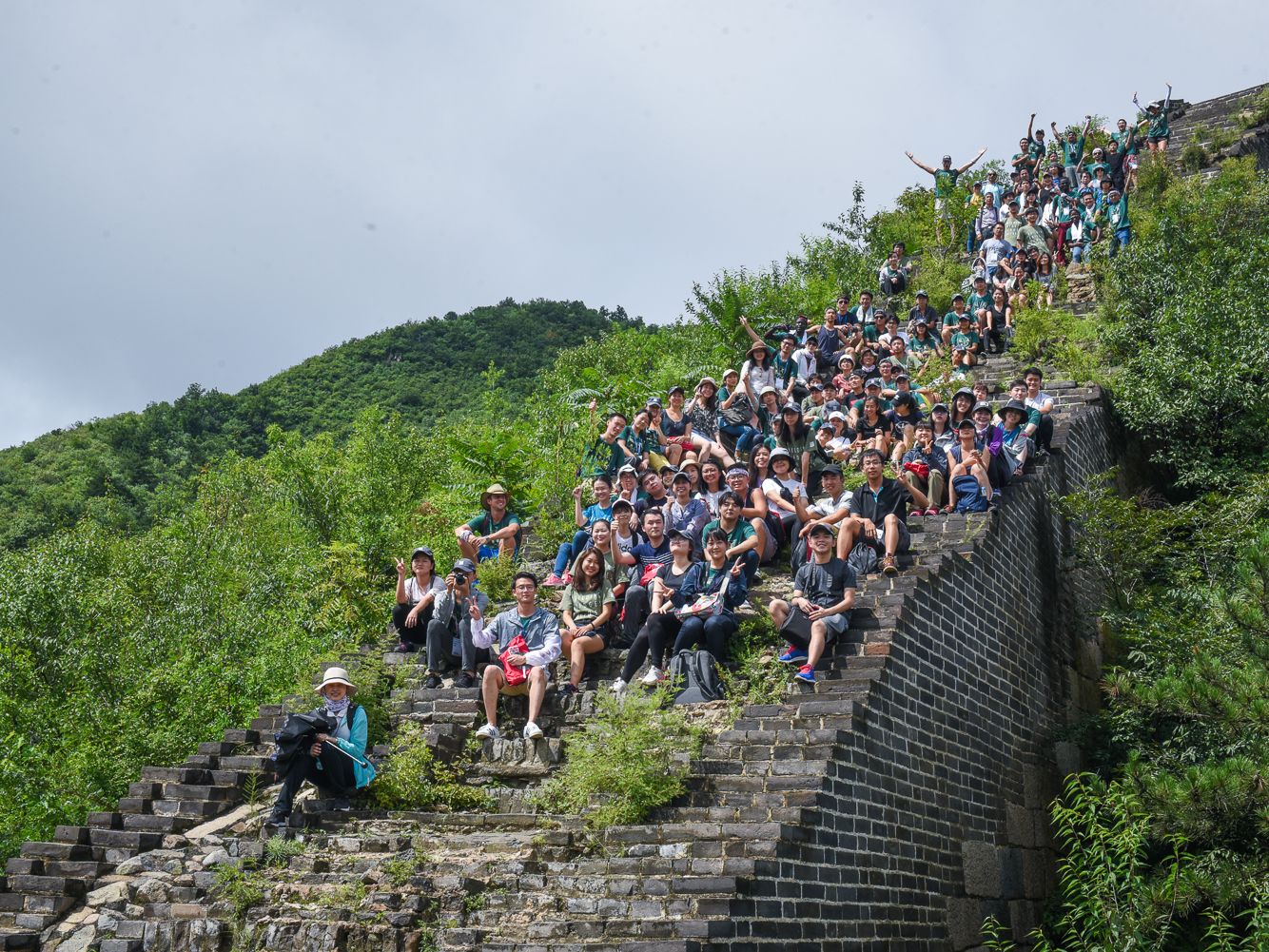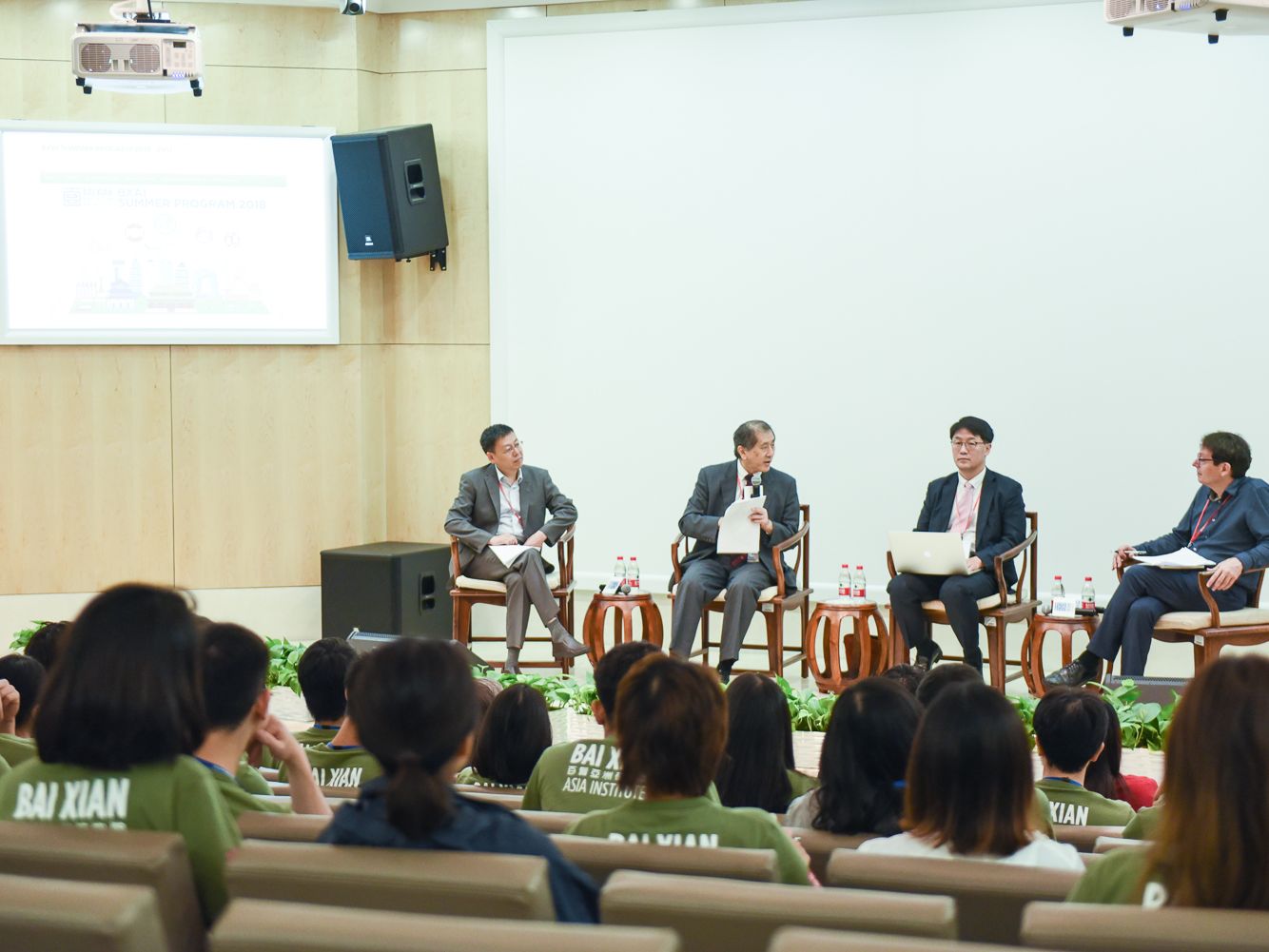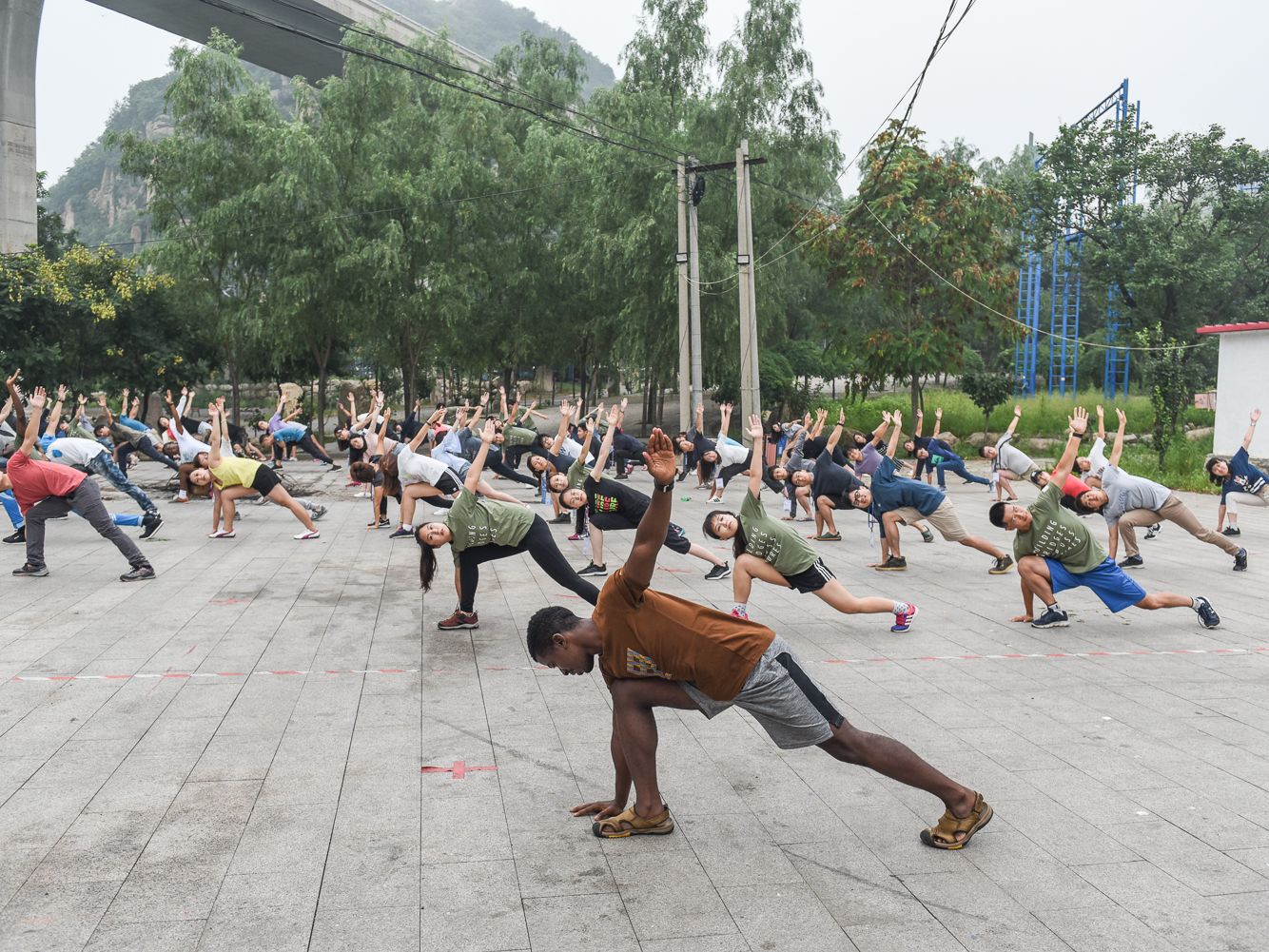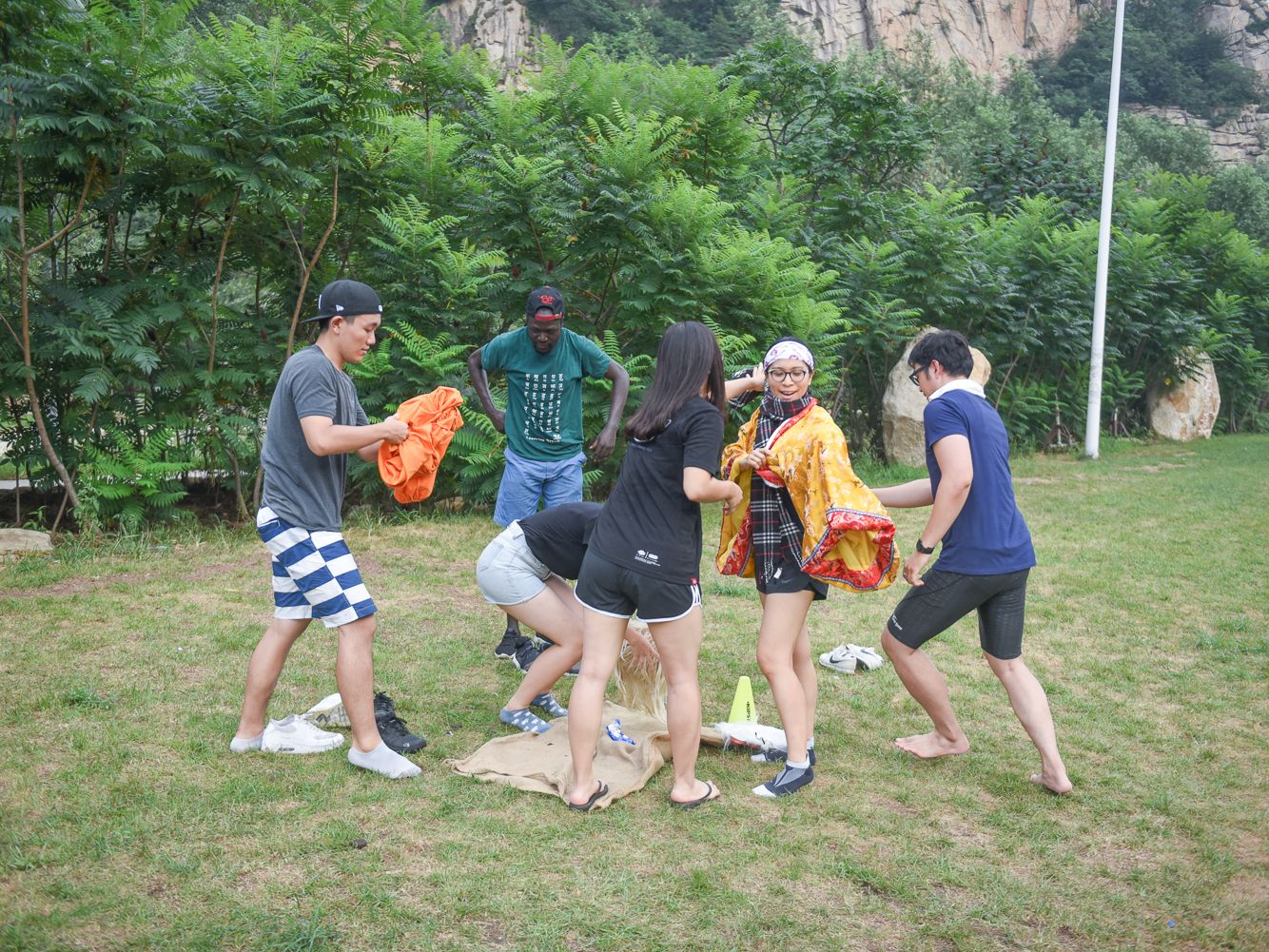Building and Nurturing the Bai Xian Community
Over the past few weeks, we have thoroughly enjoyed reconnecting with over a hundred AFLSP Scholars, BX Alumni, as well as university professors and staff at our BXAI gatherings in Hong Kong, Kyoto, and Tokyo.
It was great to hear from both current students and alumni, who shared their personal growth stories and spoke openly about the challenges they faced during their time abroad. We also learned about how their cultural immersions broadened their horizons and opened their eyes to the world around them.
Hiroki Mizumura, a Japanese BX Alumnus who has studied in Taiwan, Beijing, Tokyo, and the UK, spoke about an encounter he had while travelling in China, when a Chinese man sitting next to him on a train confronted him about his views on the Nanjing Massacre. Hiroki recalled this person’s initial bitterness and anger toward him, which was later tempered following a lengthy conversation. “I wasn’t studying in China because I wanted to quarrel with people, but because I was genuinely interested in learning about Chinese culture and engaging with Chinese people,” said Hiroki. “Once I told him that and shared my personal story with him, he became much happier.” The two eventually managed to find common ground, respectfully exchange opinions, and even begin a friendship, demonstrating the importance of mutual understanding in our mission to create a harmonious society. “Though it was difficult at the time, I now see our exchange as a precious experience of building bridges across cultures.”
We were also very encouraged by scholars who shared about the many challenges they faced and how they grew from those experiences. Taiwanese scholar, Huang Yin Hsuan, spoke about how her multiple failed attempts to enter medical school ultimately helped her develop persistence. BX Alumna, Kim Daum, who is Korean but was raised in China and currently works in Tokyo, highlighted the difficulties she encountered with finding her identity having lived in different countries, as well as her struggles with bullying, depression, and an eating disorder. She eventually overcame these obstacles and decided to transform her painful experiences into something good. “I realized that I wasn’t the only one struggling with loneliness, and that it is something everyone experiences to some degree,” said Daum. “And if this is true, why aren’t we sharing more of ourselves with one another? That’s part of what led me to explore how I could help connect people across cultures and language barriers.” Inspired by the BXAI Summer Program, Daum has initiated two social impact projects: Nanumi was founded in 2012 and is a charity organization that has recently expanded to engage volunteers from 14 countries across the globe; while Ethnic Neighborhoods aims to utilize technology to connect immigrant communities around the world.
Chinese scholar Pan Wei Kang shared about his community service project at the Kyoto Self-Help Devices Office, where he designs self-help devices such as sock aids and one-hand chopping boards for disabled and elderly people. Reflecting on his experience, Wei Kang said, “What I learned from my time as a volunteer is that all this academic knowledge that we gain from university can actually be applied to help people in need. I feel very fortunate to have the opportunity to work alongside volunteers of different ages and nationalities as we seek to contribute to the local community together.”
At our Tokyo gathering, BX Alumna Ami Higuchi recounted her multicultural upbringing and how that led her to initiate “Project Abroad”, a conference for Chinese students to engage in in-depth discussions with leading Japanese entrepreneurs, practitioners, and students. She also encouraged current scholars to take advantage of the BXAI platform to make a positive impact. “I have experienced the value of being a part of the BX community – it truly opens up many opportunities for us,” she said.
Thank you to everyone who attended our gatherings and to those who helped make these events possible. Hearing from many of you who shared so honestly and openly, we were very encouraged to see how the BX community has grown to become a safe yet diverse space that promotes human connections and intercultural learning opportunities. We firmly believe that these gatherings are an important component of our mission to build bridges across cultures in Asia and beyond, and look forward to seeing more of you at our future events!
Prof. Danit GAL
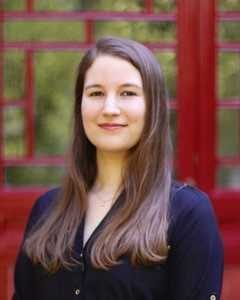
Danit Gal is Project Assistant Professor at the Cyber Civilization Research Center at Keio University Global Research Institute, where she specializes in the implications and applications of artificial intelligence (AI) and technology geopolitics. Speaking at the “Living Smart” topic learning session at the BXAI Summer Program 2018, Danit shared her research on AI and discussed with students regarding the responsible use of technology in today’s world.
With a background in cyber-security, Danit began her career investigating how technology is used by terrorists, which led her to realize that her true interests lay in “seeing the bigger picture” of technology, i.e., exploring how society and technology interact with and shape each other. This defining moment compelled her to ultimately shift her specialization to AI, where she researches and examines sustainable ways to use technology to benefit humanity.
On using technology responsibly, Danit advises, “Be intelligent about the technology you use and how you use it. We really need to understand that just because it works, it doesn’t mean it will work for us. We should make intelligent decisions about what we decide to bring into our lives.”
Brian TAM
Brian Tam, creativity catalyst and founder of Shanghai-based creativity and innovation consultancy, Let’s Make Great, shares about how his professor’s unique way of teaching reshaped his perspective on learning and inspired him to discover his career passion: to create, communicate, and understand.
The Bai Xian Alumni Initiative Award 2019
Want to realize your vision for change?
Start with the BAI XIAN ALUMNI INITIATIVE AWARD
The Bai Xian Alumni Initiative Award (AIA) invites Bai Xian Alumni to develop socially responsible action plans that address challenges faced by Asia’s communities, environments, and economies. Alumni from different campuses and regions are encouraged to work together in teams to produce plans in line with themes determined by BXAI. Launched in 2017, the AIA aims to inspire alumni and scholars to make a social impact.
For the 2019 AIA, BXAI wants your action plans that address one of the following areas:
(1) Community Integration
(2) Heritage Preservation
(3) Social Innovation
Prizes:
The winning team will receive:
- A cash prize of US$2,500 for the whole team; and
- Seed funding of up to US $15,000 to be disbursed in stages subject to the proposed budget and project progress
Guidelines and Criteria:
Team Structure:
- 3 to 6 members
- Team leader must be a BXAI Summer Program alumnus
- At least 50% of the team members must be BXAI Summer Program alumni
- Two mentors: one academic mentor and one professional mentor (e.g. practitioner, NGO executive, business professional)
- Registered operating businesses applying for the AIA must not be more than 12 months old (based on registration date) by the December 31, 2018 AIA application deadline
Action Plan Format:
- Proposal must include a clear execution plan and action timeline that spans up to 12 months
Important Dates:
- 31 December, 2018: Submission of initial proposal and application form
- 28 February, 2019: Submission of draft project plan and preliminary budget
- 31 May, 2019: Submission of final project plan and revised budget
Points to Consider:
- Be realistic
- Form teams that match project needs with members’ skills and talents
- Ensure your project plan is clear and concise
- Consider your personal capacity and time commitment
- Be accountable for your proposed deliverables
- Be aware of the added complexity of collaborating with people in different cities
- Teams are encouraged to connect or partner with NGOs, universities, or on-the-ground practitioners
If you need help connecting with other AFLSP Scholars or BX Alumni to form a team, please share your idea on the BXAI AIA Idea Pool [click] so that those interested in joining your team may get in touch with you.
Submit your online AIA application form here [click]
To learn more please contact us at bxai_alumni@bxai.org
All the best!
BXAI Summer Program 2018 Highlight Video
We were very pleased to see around 90 students eagerly taking part in the Summer Program’s many activities, embracing challenges, and engaging with fellow scholars from different countries and backgrounds. Their enthusiasm and marked personal growth have reaffirmed our belief in the importance of cross-cultural exchanges as we seek to promote peace and understanding in the region.
Enjoy!
AFLSP 2018 Selection Results
Name: | Applying for Program: | University: |
| LIN Zheqi | Master of Social Science in Global Political Economy | The Chinese University of Hong Kong |
| IN Sanghyun | Bachelor of Medicine and Bachelor of Surgery | Fudan University |
| NISHIYAMA Yuri | Master of Arts in Modern and Contemporary Chinese Literature | Fudan University |
| YIP Ching Wan | Doctor of Medicine and Bachelor of Medicine | Fudan University |
| LU Yaou | Bachelor of Economics | Keio University |
| YU Xuqin | PhD in Media Design | Keio University |
| ZHANG Minhao | Master of Media Design | Keio University |
| MENG Hanqing | Master of Engineering | Kyushu University |
| XIA Liqin | Master of Arts in International Studies (Area Studies) | Seoul National University |
| CHEN Shihuan | Master of Arts in English | Taiwan University |
| SEO Seungim | PhD in Musicology | Taiwan University |
| HSIEH Jui-Cheng | Master of Science in Physics | Tsinghua University |
| YANG Cherin | Bachelor of Economics and Bachelor of Accounting (Double Degree) | Tsinghua University |
| JOO Jungeun | Bachelor of Science | The University of Hong Kong |
| LIN Hsin Yu | Bachelor of Finance in Asset Management and Private Banking | The University of Hong Kong |
Bai Xian Asia Institute Celebrates the Conclusion of its 2018 Summer Program
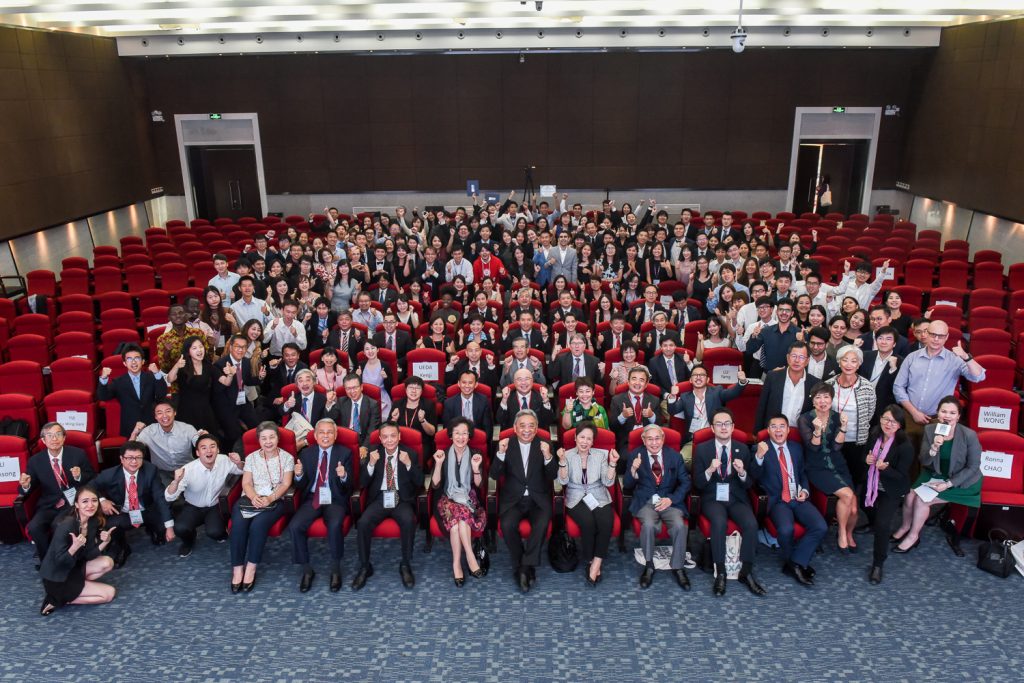
(Beijing, August 24, 2018) Bai Xian Asia Institute (BXAI) held its fourth annual Summer Program from August 3 to 24 this year in Beijing, China. BXAI aims to build bridges across cultures through its Asian Future Leaders Scholarship Program (AFLSP), which provides financial support and cultural enrichment opportunities to students in Asia studying abroad at top universities in Greater China, Japan, and Korea. Every August, current scholars from the AFLSP gather on one university campus for the BXAI Summer Program – a fun and enriching three-week experience that is designed to extend learning beyond the classroom.
This year’s Summer Program was hosted by the Yenching Academy of Peking University (PKU), and saw 87 students from BXAI’s 16 partner universities in attendance. Exploring the theme of “Tradition and Innovation,” students engaged in cultural exchange and collaboration and deepened their knowledge on important topics affecting East Asia today. The program kicked off with an interactive scavenger hunt at PKU, followed by a three-day excursion to Shimenshan, where students honed their teamwork skills through different outdoor challenges and climbed a section of the Great Wall.
Back on campus, students were divided into three topic learning streams led by PKU professors: “Heritage Preservation,” “Living Smart,” and “Urban-Rural Integration.” Distinguished speakers from universities and organizations across Asia delivered lectures on real-world issues and topics such as the restoration of historic sites, the social impact of domesticating artificial intelligence, and the environmental issues surrounding urbanization. Alongside in-class discussions, students gained immersive learning experiences through field trips to the Zhihua Temple, Baidu’s Autonomous Driving Unit, Beijing’s Urban Planning Museum, and the self-urbanized Zhenggezhuang Village. Students also participated in workshops to learn about local craft and culture, trying their hand at Chinese painting, lion and dragon dancing, and tea ceremony traditions.
Throughout the Summer Program, students benefited from personal development workshops on design-thinking, public speaking, and entrepreneurship, which equipped them with skills they can apply to social ventures and future careers. Bai Xian Alumni put these skills to use during the Alumni Initiative Award (AIA) pitch session on August 22, where two finalist teams presented their socially responsible action plans to compete for a USD 2500 cash prize and up to USD 15,000 in seed funding to take their ideas forward. Bai Xian Alumnus, Xue Weiqi, from Innowat shared his team’s aim to recover sulfated polysaccharides (a scarce resource used in various global industries) during municipal wastewater treatment, while Fairshare Cashmere spoke about their vision to increase the global market share of cashmere produced in Kashmir, India, and create job opportunities for local artisans. The juding panel, comprised of Mr. Alex Fang, Co-founder and Managing Partner of eGarden Ventures; Ms. Mary Anne Choo, Managing Director of Goldman Sachs Asia; and Mr. William Wong from BXAI’s Executive Committee; eventually awarded the grant to Fairshare Cashmere, which includes Bai Xian Alumna Nimrat Kapra and teammates Adil Hamid and Danish Mir.
During the last week of the program, students delivered their final presentations – the culmination of their learning throughout the three weeks. Channeling the theme of “Tradition and Innovation,” students harnessed modern technology to create innovative solutions to traditional issues. Some groups proposed using online or smartphone platforms to spread awareness of traditional activities, cuisine, and dialects, and incorporated skits and videos into their presentations. Other groups focused on promoting recycling and waste reduction through social media and by devising creative strategies to conserve resources. The winning team, Group B, launched a prototype website that offers lessons in and products of traditional arts and crafts to consumers across the world.
Students also had the opportunity to take part in a fireside chat with members of BXAI’s leadership, including Mr. Ronald Chao, Honorary Chairman of BXAI; Professor Takanori Kitamura, Executive Committee Member of BXAI and Professor at The Chinese University of Hong Kong; and Ms. Jean Sung, Board and Executive Committee Member of BXAI and Head of The Philanthropy Centre, Asia at J.P. Morgan Private Bank. The speakers shared their experiences, insight, and advice with students, encouraging them to build meaningful relationships and use their intercultural understanding to mold the future.
“My experience in Japan taught me that the most important thing is for young people to know each other,” said Mr. Chao regarding his founding vision for BXAI.
The Summer Program concluded with final speeches and celebrations on Thursday, August 23. Mr. Jason Lai, Principal Conductor of the Yong Siew Toh Conservatory Orchestra, delivered the morning keynote lecture on leadership by demonstrating different ways of conducting an orchestra. To show the importance of communicating clearly and leading compassionately, he invited students to try their hand at conducting PKU musicians.
At the closing ceremony, Mr. Nick Cotton, Executive Director of Outward Bound Hong Kong, delivered a keynote speech on the value of risk in today’s increasingly cautious and sheltered society. He advised students to not be afraid of risks, but to assess and mitigate them effectively in order to make courageous strides.
“You are the leaders of tomorrow,” he said. “We need people to break the mold.”
Ms. Ronna Chao, CEO of BXAI, also took to the stage to give students empowering words of advice. Speaking to the value of “firsts,” which for the scholars ranged from the first time climbing the Great Wall to the first time taking the Harrison Assessment, Ms. Chao encouraged everyone to continue challenging and enriching themselves.
“Each of you is a piece in the foundation of the bridge across cultures that Bai Xian is determined to build,” she said. “Go out there, extend your reach, be that connector and game-changer!”
The closing ceremony concluded with a meaningful handover ceremony, where Professor Yuan Ming, Dean of the Yenching Academy, passed the BXAI calligraphy book to Professor Shinsuke Kawazoe of Kyoto University. Inscribing Kyoto University’s name in the book, Professor Kawazoe officially took up the baton as next year’s Summer Program host, marking the successful end to the 2018 Summer Program and welcoming another year of building cross-cultural collaboration, leadership, and friendship.
Preparations, Presentations, and Celebrations
The final week of the Summer Program, which transitioned from brainstorming ideas as a team to bidding friends farewell at Thursday night’s gala dinner, was a rollercoaster of emotions.
Feeling both inspired and perhaps slightly under pressure, we began preparing for our final presentations, the culmination of our Summer Program learning, at the end of week two.
“The core of design-thinking is the user’s problem, which you know through empathy,” addressed Brian Tam during the Deep Dive workshops. By following an exploratory approach, we learned to tackle social issues by locating a “user-bug,” identifying a focus challenge, and testing prototypes. Some students also devoted the weekend to working on their projects – Group A conducted a thorough survey of the recycling practices of Peking University by interviewing community members and local companies, while Group E biked 10 km around Beijing filming a video for their presentation.
Final presentations were not all that was keeping students busy, however, for nine scholars took time out of their own schedule to prepare speeches for Monday evening’s student presentations for the public speaking workshop, a wrap-up of last week’s session. Asian Future Leaders Scholarship Program (AFLSP) Scholar Ning Pan from Waseda University discussed how various “escapes” to different countries helped her refine her career goals. In a display of teamwork and friendship, AFLSP Scholar Kentaro Sakamato from Peking University acted as a translator for Yusuke Oe from Waseda University, who spoke in Japanese about the importance of pushing one’s limits.
Before delivering our final presentations, we had the opportunity to observe what a real-life, social startup pitch looked like at the Alumni Initiative Award pitch session on August 21, where two finalist teams presented their actions plans to compete for a USD 2500 cash prize and up to USD 15,000 in seed funding to take their ideas forward. The pitches were judged by Mr. Alex Fang, Co-founder and Managing Partner of eGarden Ventures; Ms. Mary Anne Choo, Managing Director of Goldman Sachs Asia; and Mr. William Wong from Bai Xian Asia Institute’s (BXAI) Executive Committee.
Speaking on behalf of team Innowat, Bai Xian Alumnus Xue Weiqi talked about his aspiration to transform waste into profit by recovering sulfated polysaccharides during wastewater treatment and applying the scarce resource to various industries. Representing Fairshare Cashmere, Bai Xian Alumna Nimrat Kapra and collaborators Adil Hamid and Danish Mir spoke about creating more equality in the cashmere industry. Fairshare Cashmere was ultimately crowned the winner of the 2018 Alumni Initiative Award and plans to increase the global market share of cashmere in the team’s hometown of Kashmir, where the fiber originated.
On Wednesday, our long-awaited final presentations finally took place, and all participants presented innovative solutions to traditional social issues. Targeting the important topic of waste reduction, Group A examined traditional and habitual ways that we create waste while Groups D (“Just Recycle It!”) and H (“EcoFunFun”) proposed using smartphone apps to encourage more sustainable behavior. Group I suggested replacing delivery companies’ plastic packaging with reusable boxes. Other groups pitched ideas that raise awareness about traditional values: Group C presented an app that allows users to teach dialects through funny, viral videos; Group E developed a skill-sharing platform for promoting traditional activities; Group F spoke about ameliorating problems faced by inner-city villagers lacking common resources; and Group G proposed an online platform for sharing traditional recipes from rural areas with urbanized regions. The judging panel, which included Professor Katsuichi Uchida, President of BXAI; Dr. Yansong Li, President of Shanghai International Studies University; and topic learning stream lead instructors Professor Lu Yang and Dr. Shengjun Zhu; awarded the Best Presentation Award to Group B, which created a prototype website that offers traditional arts and crafts lessons and products to people around the world.
In the final days of the Summer Program, we also had the opportunity to attend a fireside chat and hear about BXAI’s mission directly from a few of the Institute’s leading members, which included Mr. Ronald Chao, Honorary Chairman of BXAI; Professor Takanori Kitamura, Executive Committee Member of BXAI and Professor at The Chinese University of Hong Kong; and Ms. Jean Sung, Board and Executive Committee Member of BXAI and Head of The Philanthropy Centre, Asia at J.P. Morgan Private Bank.
“Everyone in this room is an elite,” said Mr. Chao. “But a real elite is someone who really knows the world, and tries to lift up the people around them.”
The other panelists emphasized the importance of knowing the world through intercultural relationships. Professor Kitamura stressed that a lack of contextual understanding across borders complicates peaceful integration in Asia, while Ms. Sung highlighted the significance of reflecting on different values to adapt to a changing, multicultural society.
During the Q&A session, Ms. Sung had a particularly uplifting message for the female leaders in the crowd: “Today, women have choices,” she said, underscoring how today’s society has evolved from the past. “You have decisions you can make for yourself.”
On Thursday morning, a keynote lecture delivered by Mr. Jason Lai, Principal Conductor of the Yong Siew Toh Conservatory Orchestra, encouraged us to think even further about the decisions we can make to become a positive leader. He demonstrated different styles of leadership by conducting an orchestra myriad ways, and invited students to try their hand at conducting to show the importance of leading with clarity and compassion.
He also surprised everyone by showing that the orchestra could play just as well without the conductor—a showcase of the performing musicians’ leadership, mutual trust, and sense of ownership cultivated by their leader. “When I stand back, everyone has to step up,” he said.
At the closing ceremony, Mr. Nick Cotton, Executive Director of Outward Bound Hong Kong, delivered a keynote speech on the value of risk in today’s increasingly sheltered society. He advised students to embrace risk-taking, and to assess and mitigate risks effectively in order to grow as active learners.
“You are the leaders of tomorrow,” he said. “We need people to break the mold…. Being a good leader is about giving people opportunities to test themselves.”
Ms. Ronna Chao, CEO of BXAI, also gave us empowering words of advice. Speaking to the value of “firsts,” which for many of us range from the first time climbing the Great Wall to the first time taking the Harrison Assessment, Ms. Chao encouraged everyone to continue challenging and enriching themselves.
“Each of you is a piece in the foundation of the bridge across cultures that Bai Xian is determined to build,” she said. “Go out there, extend your reach, be that connector and game-changer!”
BXAI’s strength at creating “connectors” became clear when alumni from across Asia joined us in Beijing for the gala dinner. Mio Sato, Naoya Matsumoto, and Eun Seo Kim discussed how the AFLSP has shaped their career pathways, and delivered a stunning Japanese, Chinese, and Korean rendition of “Yuki No Hana,” as well as “Try Everything” by Shakira. Aside from being entertained by alumni performances and an exhilarating lion dance showcase featuring intrepid students, the gala dinner was also a time for us to recognize the hard work of our dedicated student advisors, photography crew, and staff. We reminisced about fond memories from the past three weeks, which for one scholar included receiving a birthday card written in different languages—a testament to the diversity and friendship of the Summer Program participants.
Towards the end of the evening, Yenching Academy scholar Joel Odata described the Summer Program as a “once-in-a-lifetime” opportunity. Indeed, numerous moments from the program seem utterly unique and unrepeatable—from taking on the via ferrata to joining AFLSP Scholar Hijiri Miyazaki, Mr. Ronald Chao, and other guests in a conga line at the gala dinner.
Yet when Mr. Cotton asked us at the closing ceremony to think of the biggest risk we had ever taken, and to contemplate whether we would repeat it, one might consider the risks that were taken to found BXAI. To uphold BXAI’s mission is to ensure that opportunities such as the Summer Program are not just “once-in-a-lifetime,” but ways to spend a lifetime—forming new friendships, developing leadership, and building bridges across cultures.
Building Bridges Across Time: Tradition and Innovation
After a good night’s sleep following the Great Wall Excursion, we were ready to transition from facing outdoor challenges at Shimenshan to problem-solving within Yenching Academy classrooms. Through workshops, lectures, and field trips, we spent the past week developing intrapersonal skills and exploring this year’s Summer Program theme of “Tradition and Innovation”.
Each day began with self-enrichment workshops led by experts from across Asia. Professor Shirley Lin and Professor Harry Harding returned for their annual leadership workshop, elaborating on different leadership styles as well as the importance of empathy and respect. During the self-awareness workshop run by Mr. Terrance Leung, we identified our personality traits through the Harrison Assessment, and received valuable one-on-one feedback from executive coaches on our leadership skills. From the two entrepreneurship panels, we also learned that business enterprises and social enterprises are not mutually exclusive entities, but often organizations with shared passions.
“What is crazy today will be tomorrow’s common sense,” advised Mr. Daichi Konuma, whose company, Cross Fields, sends Japanese corporate workers to other East Asian countries to do social work.
Morning workshops segued naturally into afternoon lectures, where we were divided into three topic learning streams led by Peking University professors to further delve into our theme of “Tradition and Innovation” in smaller groups.
Heritage Preservation Stream
The “Heritage Preservation” stream, led by Professor Lu Yang, explored the relationships between urban planning, heritage sites, and local communities.
Professor Li Xiaocong, the foremost scholar on Chinese urban history, kicked off the session by introducing students to the characteristics of urban planning since Imperial China. He stressed that today’s architects must innovate to preserve the traditional city—not just individual sites—as an organic entity. On a similar note, Professor Shunya Yoshimi from the University of Tokyo spoke about Japan’s urbanization movement ahead of the Olympics, highlighting the idea of “vitalization”, which describes an innovative urban planning process focused on linking cultural sites as a cohesive entity.
This stream also investigated the restoration of sites such as the Forbidden City’s Jianfu Palace, which some students visited on Thursday. Ms. Li Kuanghan, the China Program Director at the Global Heritage Fund, emphasized the importance of community involvement in heritage preservation, citing examples of how some local residents have been able to build social lives and join community programs around restored monuments.
Students from this stream also had the opportunity to visit the Zhihua Temple and see how the only remaining Ming dynasty temple in downtown Beijing has been transformed through renovation. The preserved mural paintings on the temple walls and performances by monks playing traditional Chinese instruments restored a dynamic sense of life to this important heritage site.
Living Smart Stream
Examining the mixed impact of technological innovation on society was the “Living Smart” stream, led by Professor Chen Dongmin. Students learned about how innovative ways of protecting endangered species can improve biodiversity, and were encouraged to be open-minded towards the technology of gene editing. Evening screenings of sci-fi films such as Gattaca and A.I. Artificial Intelligence encouraged students to consider how academic discourse on technology has entered pop culture.
The second half of the stream dialed in on the debates surrounding artificial intelligence. “We need to make sure that AI will never subvert society,” argued Ms. Danit Gal, a Project Assistant Professor at Keio University. She stressed the need for East Asian societies—generally supportive of the use of technology in society—to have critical conversations about the ethics surrounding artificial intelligence.
Students in this stream also participated in an exciting excursion to Baidu’s Robotics and Autonomous Driving Lab, where they learned about Baidu’s vision of incorporating artificial intelligence into everday life. Students even had the chance to go for a spin in one of the company’s sleek Apollo cars, an autonomous vehicle that adapts to passengers’ needs.
Urban-Rural Integration Stream
Dr. Shengjun Zhu curated the “Urban-Rural Integration” stream, which explored the implications of urbanizing rural areas. Professor Seo Ryeung Ju from Kyung Hee University spoke about how Korea’s rapid urbanization led to both the development of highly connected new towns as well as the evacuation of older districts, while Professor Yosuke Hirayama from Kobe University discussed how Tokyo has likewise witnessed the abandonment of rural areas in exchange for urban redevelopment. Although urban policies in East Asian countries have generally readjusted to prioritize economic and international competition, such innovation often comes at the expense of tradition, generating issues such as income inequality.
This stream featured not one, but two field trips. Last Friday, students travelled to the self-urbanized Zhenggezhuang Village to see how 20 years of economic development and tourism have transformed a once-rural community. The following Tuesday, students visited Beijing’s Urban Planning Museum, where models of the city revealed the history and future of Beijing’s urban planning.
“Top-down and bottom-up approaches to urbanization in private and public sectors are closely tied together in order to realize the harmony of tradition and innovation,” reflected stream 3 student Yuya Hashinaga, an AFLSP Exchange Scholar studying at the University of Hong Kong. Hashinaga believes that tradition and innovation should not be mutually exclusive, but should instead work together in harmony to benefit a society. “Both top-down and bottom-up approaches manifest themselves in different ways across different nations,” he said, “but collaborative atmospheres exist in all.”
Celebrating Chinese Tradition
After completing our topic learning sessions, we regrouped on Wednesday to explore the history and culture of our host country by participating in various Chinese art and cultural workshops. Some of us learned about the philosophy and methods of ink wash painting, and painted a lotus flower on a fan to take home. Others learned about tea ceremony rituals, which involves savoring freshly steeped tea and embracing a meditative attitude. Some students participated in a lion and dragon dance workshop, where they exercised their teamwork skills to support the weight of not only a long, colorful mythical creature, but also one another as they lifted each other up in a series of dance and acrobatic moves! An exercise in harmony, the workshop challenged students to be conscious of each other’s strengths so they could move together as a collective entity.
From learning about contemporary issues in East Asia to dabbling in a variety of cultural activities, we spent last week reflecting on the past while looking towards the future. As we continue to grow our awareness of historical contexts and nurture an eagerness to embrace change, we look forward to our remaining week in Beijing, where we will have the chance to apply much of what we have learned into our final presentations and celebrate the conclusion of this memorable experience together!
Great Expectations and the Great Wall
Part 1
On August 3, around 90 students from BXAI’s 16 partner universities across East Asia gathered at the Yenching Academy (YCA) of Peking University (PKU) for the fourth annual Bai Xian Asia Institute (BXAI) Summer Program.
At the Opening Ceremony on August 4, Professor Lu Yang, Director of Graduate Studies at YCA, remarked upon the significance of this year’s partnership—both BXAI and YCA are like-minded institutions “taking ingenious approaches to enhance cultural understanding.” Professor Katsuichi Uchida, President of BXAI, further elaborated on the mission of the Summer Program and introduced this year’s theme, “Tradition and Innovation,” which will challenge us to consider the sustainable development of future cities.
Catherine Sze, a YCA student and AFLSP scholar, also took to the stage to share her impressions of Beijing with us.
“You can get around the city by only using the apps on your phone,” she remarked. “At the same time, you can also visualize the city’s historical past by visiting cultural attractions and heritage sites,” she continued, noting Beijing’s identity as a global city that conjoins both tradition and innovation.
After the Opening Ceremony, we enjoyed a meal with PKU student advisors before diving into a collaborative, team-building scavenger hunt around campus. Organized by the Hutong, a Beijing-based cultural exchange group, the Go! Game took us past PKU landmarks such as the Bo Ya Pagoda, the Stone Fish, and Shao Yuan dormitory, our home for the next three weeks. At the PKU Library, the largest university library in Asia, teams snapped group selfies of members looking studious. At the Khoo Teck Puat Gymnasium, originally built for the 2008 Summer Olympics’ table tennis tournaments, we completed challenges ranging from creating a group cheer to taking a creative photo of team members doing a high jump.
Although we spent our afternoon traversing the PKU campus in the 30-degree-plus heat, we braved our challenges with admirable sportsmanship and were treated to a well-deserved community dinner that evening, where everyone enjoyed local delicacies and took part in fun icebreaker activities such as the BINGO trivia game.
To kick-start the dinner, Professor David Moser, Associate Dean at YCA, recalled a time when PKU was still located in a rural area, not the “Silicon Valley of Beijing” it is today. He encouraged everyone to embrace leadership and collaboration in our so-called “Asian century.” Professor Angelina Yuen, a member of BXAI’s Executive and Academic Committees, also highlighted the importance of global leadership in her speech, underscoring BXAI’s goal to build bridges across cultures. She shared her ABCDE acronym for leadership, encouraging us to aim high, initiate change from the bottom up, form comradeships, and work with dedication, devotion, and empathy.
More words of wisdom followed at Monday morning’s panel discussion, “Envisioning East Asia’s Future in View of the Past,” which was moderated by Professor Daniel Bell from Shandong University and featured Professor Fan Shiming, Associate Dean at PKU; Professor Min Gyo Koo from Seoul National University; and Professor Aiji Tanaka from Waseda University. Topics discussed included how traditional East Asian views on morality, culture, and politics may influence future international relations, the differences between ruling by law versus by morality, and how nuances in translation shape intercultural communication. Panelists then moved on to examine modern-day East Asian conflicts and discussed ways to secure regional harmony particularly in relation to North Korea.
It was clear that students were highly engaged, as demonstrated by the lively Q&A session that followed, which centered on East Asia’s maritime disputes and how countries may compromise to cooperate for the sake of developing future relations.
Though the panel discussion began on a lighthearted note, with Professor Koo joking that we resembled construction workers with our “Building Bridges Across Cultures” T-shirts, the session ended with a more serious plea from panel members, who entreated us to become a kinder, more collaborative community of future leaders.
“Hopefully you will make our future brighter and better,” said Professor Koo.
Part 2
With fingers crossed for better weather, we embarked that afternoon on our three-day adventure with the Hutong to Shimenshan, a scenic mountain area northeast of Beijing. There, we traded Shaoyuan dorms for “container hotels” and took part in a range of physical and mental challenges that made teamwork more important than ever. While playing lawn games, teams built a ‘tower’ using spaghetti sticks and marshmallows, cheered each other on in a potato sack relay, and came head-to-head during “zorb sumo”.
“My teammates were so supportive and encouraging—they cheered me on even when I was not performing well,” remembers AFLSP Scholar Lin Yinghui from Waseda University. “Encouragement really works its magic for team building!”
We also took part in improv workshops that channeled the Summer Program’s theme by using traditional storytelling structures to create new stories. The foremost rule of improv—saying yes to different ideas—taught us the value of building on each other’s thoughts in order to innovate.
Yet all students agreed that the most daring challenge was ultimately the Via Ferrata (Italian for “iron path”) rope course. Wearing safety harnesses and strapped to lanyards, we scaled a mountainside by stepping and holding onto iron rungs attached to the wall, and crossed bridges that consisted only of cables suspended in mid-air. Everyone truly took themselves to new heights, literally and figuratively, embracing an exercise in balance, bravery, and pushing one’s boundaries.
On the last day of the excursion, rainy skies miraculously cleared, giving us the green light to hike part of the Huanghuacheng, a wild section of the Great Wall of China. As we scaled steep ascents without stairs (with some of us wearing only slippers, or even going barefoot!), we made sure to capture this memorable experience by snapping selfies along the way. For many, it was their first time on the Wall, and their excitement was contagious. Some of us even engaged in a bit of friendly competition – racing up the Wall while cheering each other on and checking up on one another to make sure our peers were safe. We truly embodied the Hutong’s motto, which many of us sported on our shirts: to “be a good egg” (做個好蛋).
From breaking out into dances together around a bonfire to helping each other up and down the Great Wall, students demonstrated genuine comradeship that heralds strong collaborations to come. On the last day of the excursion, Professor Bell’s concluding words from Monday morning’s panel felt particularly salient: “Let’s not forget that the Great Wall was originally built to keep people out,” he had said. “Now, it’s visited by tourists everywhere.” A World Heritage site that has been preserved so that people of all backgrounds can experience a historical landmark first-hand, the Great Wall is indeed a fitting symbol of the 2018 BXAI Summer Program: it is at once an example of tradition and innovation, and a place for diverse minds to meet and reach new heights.
